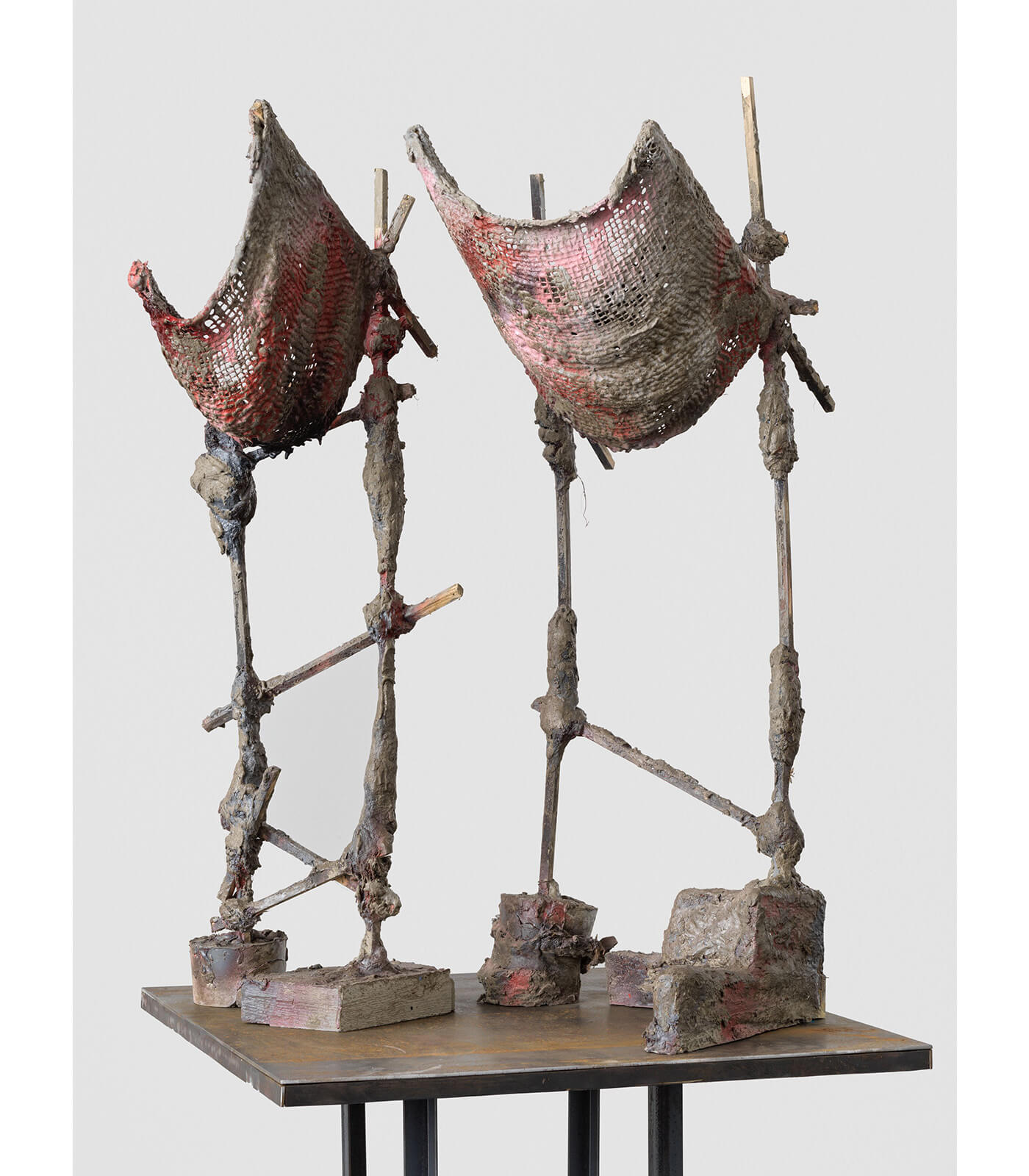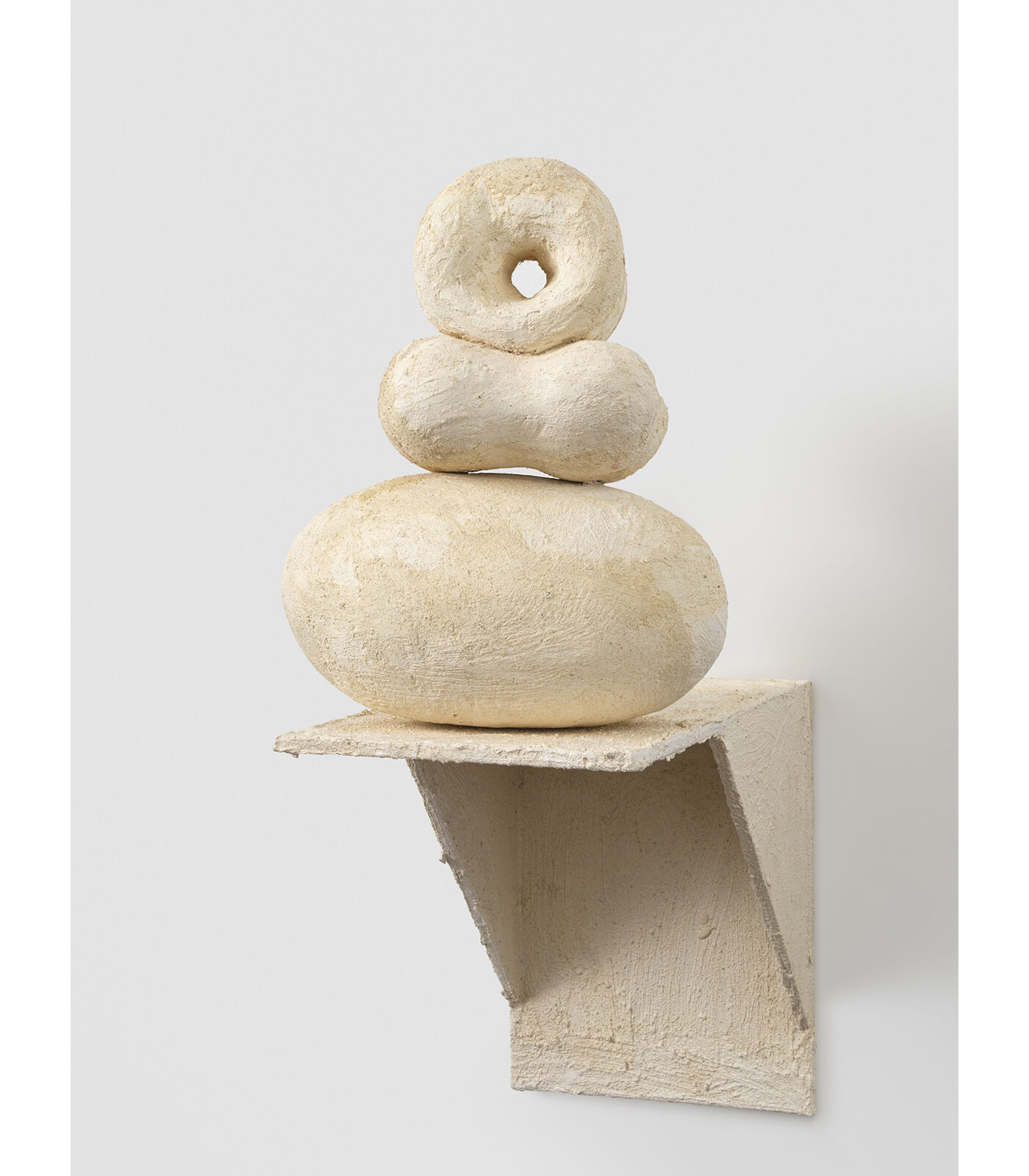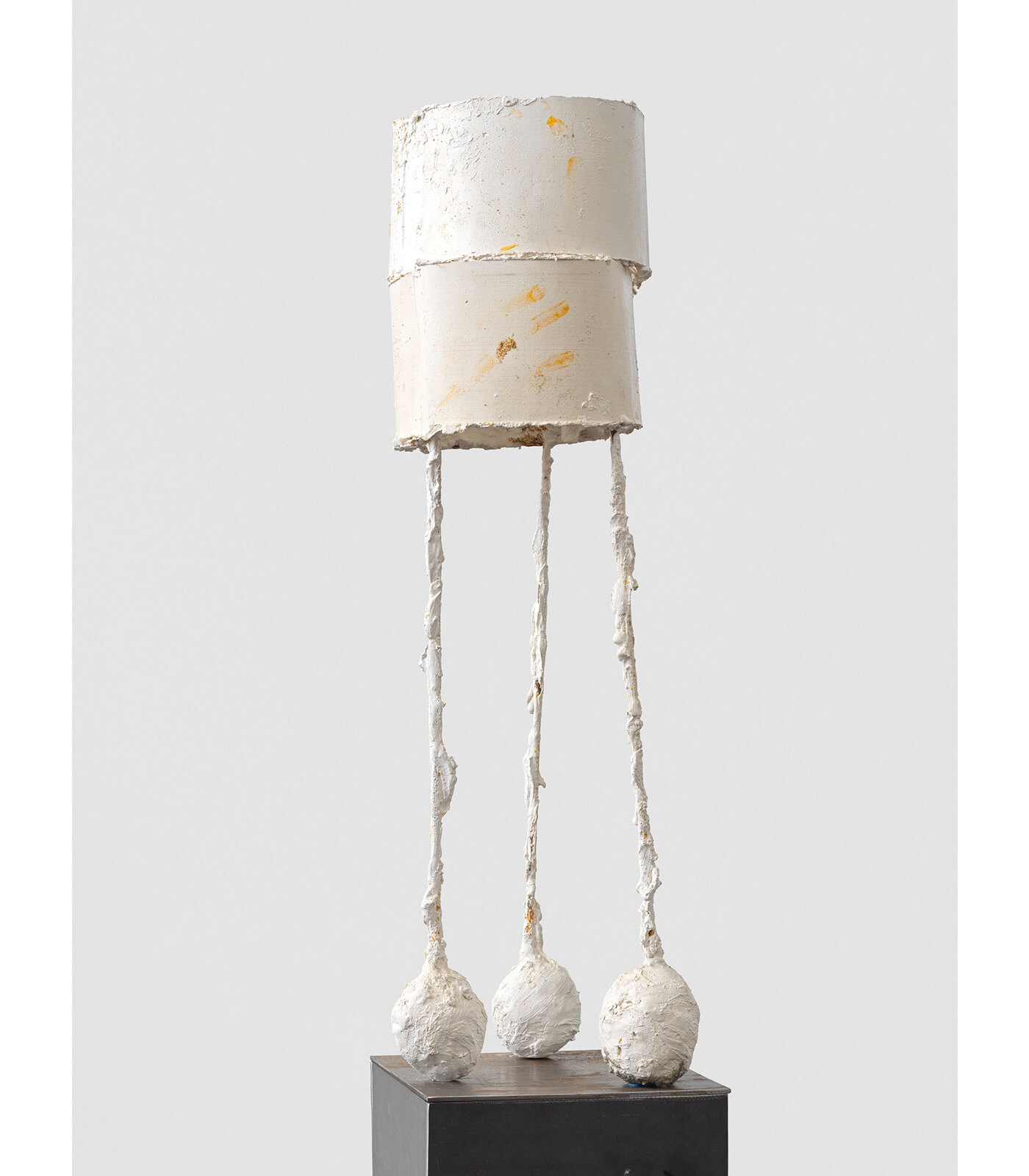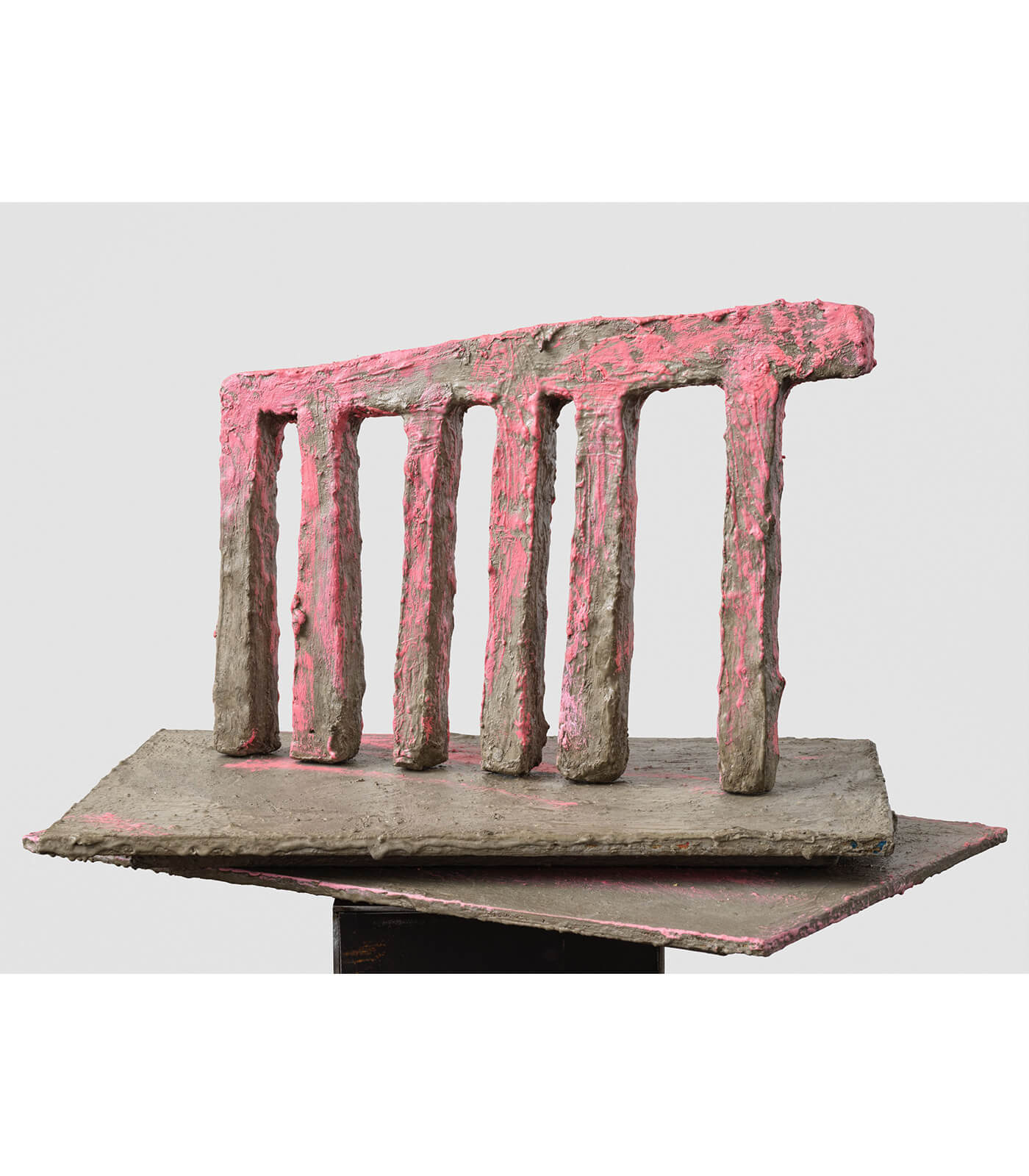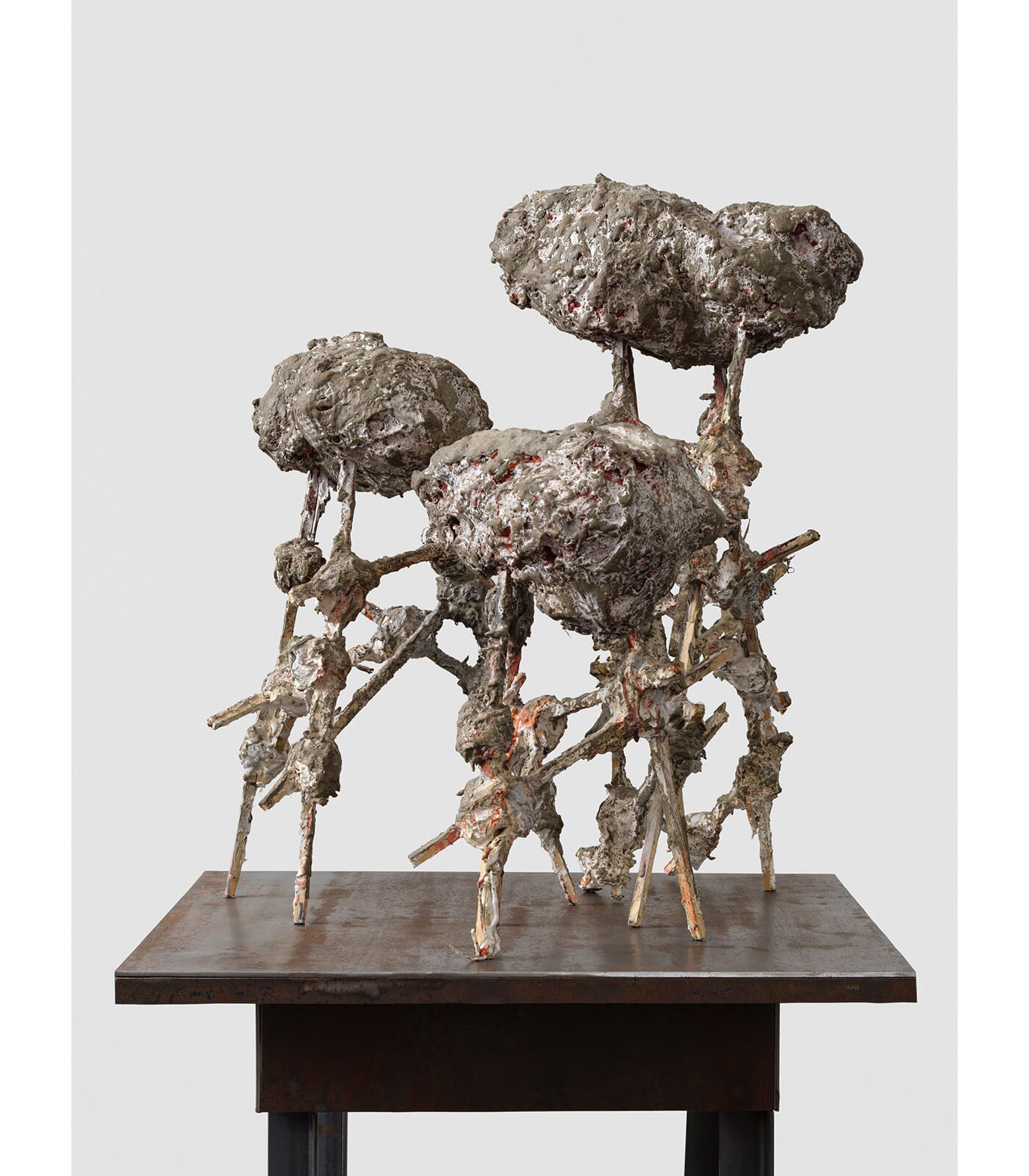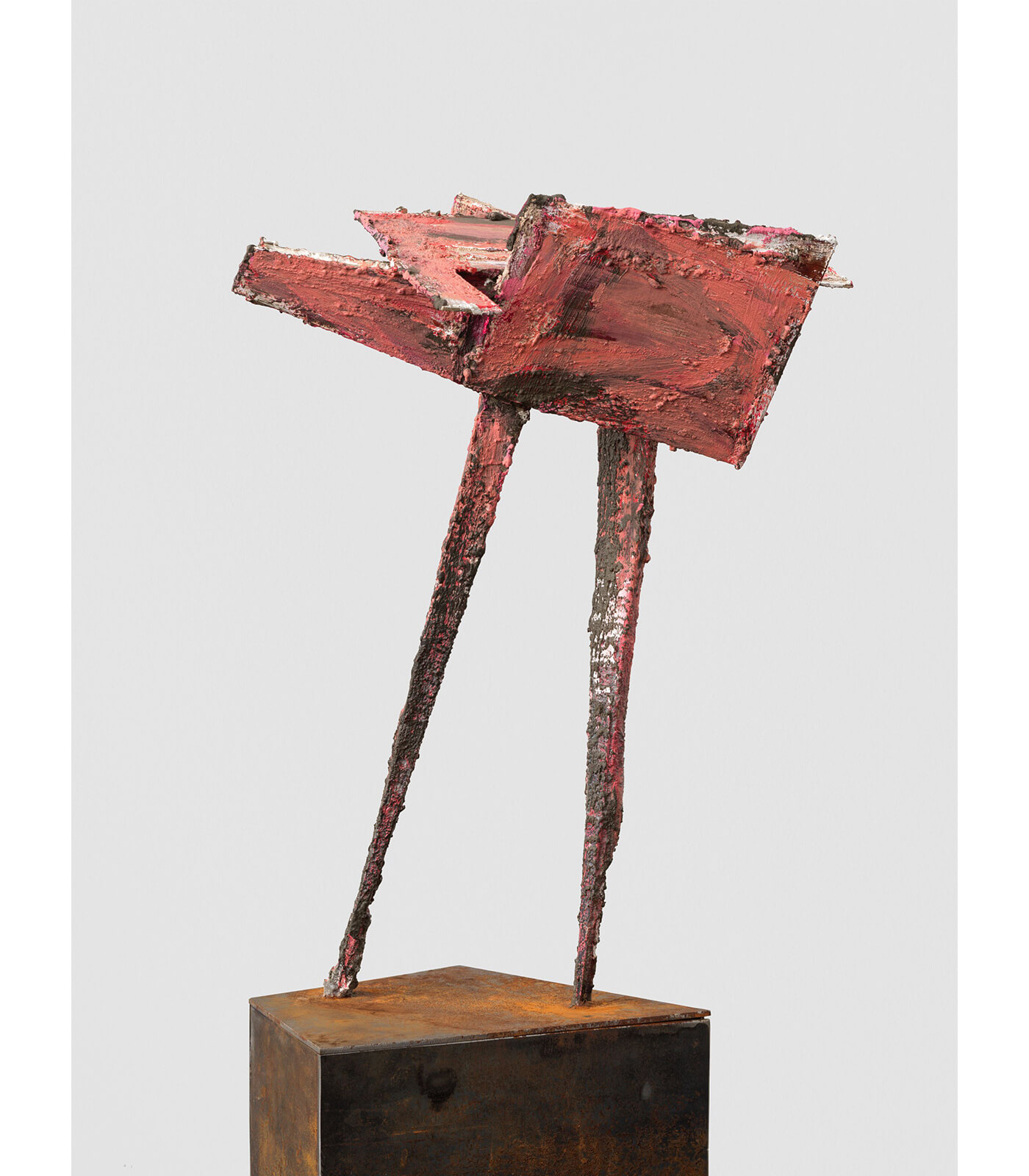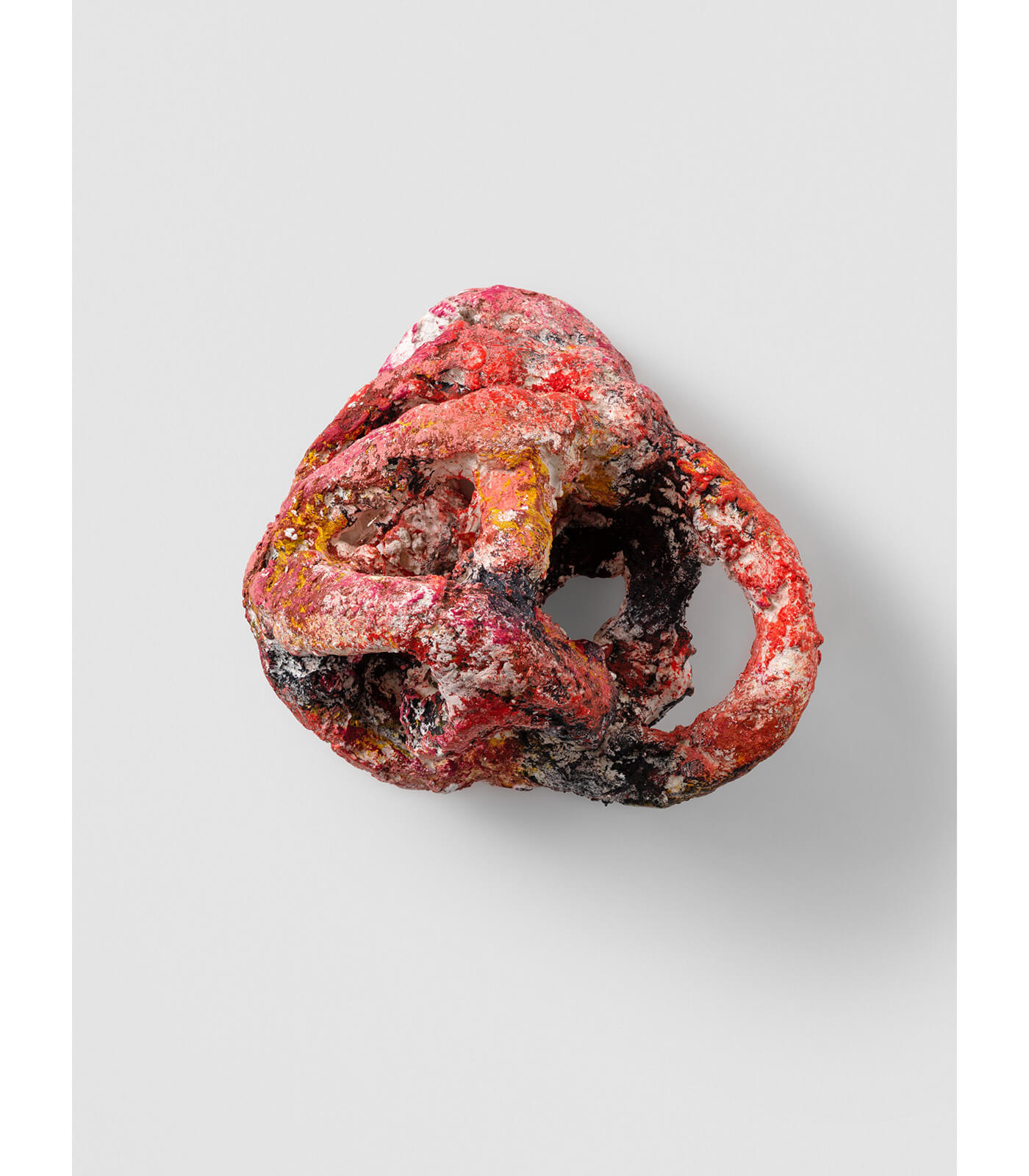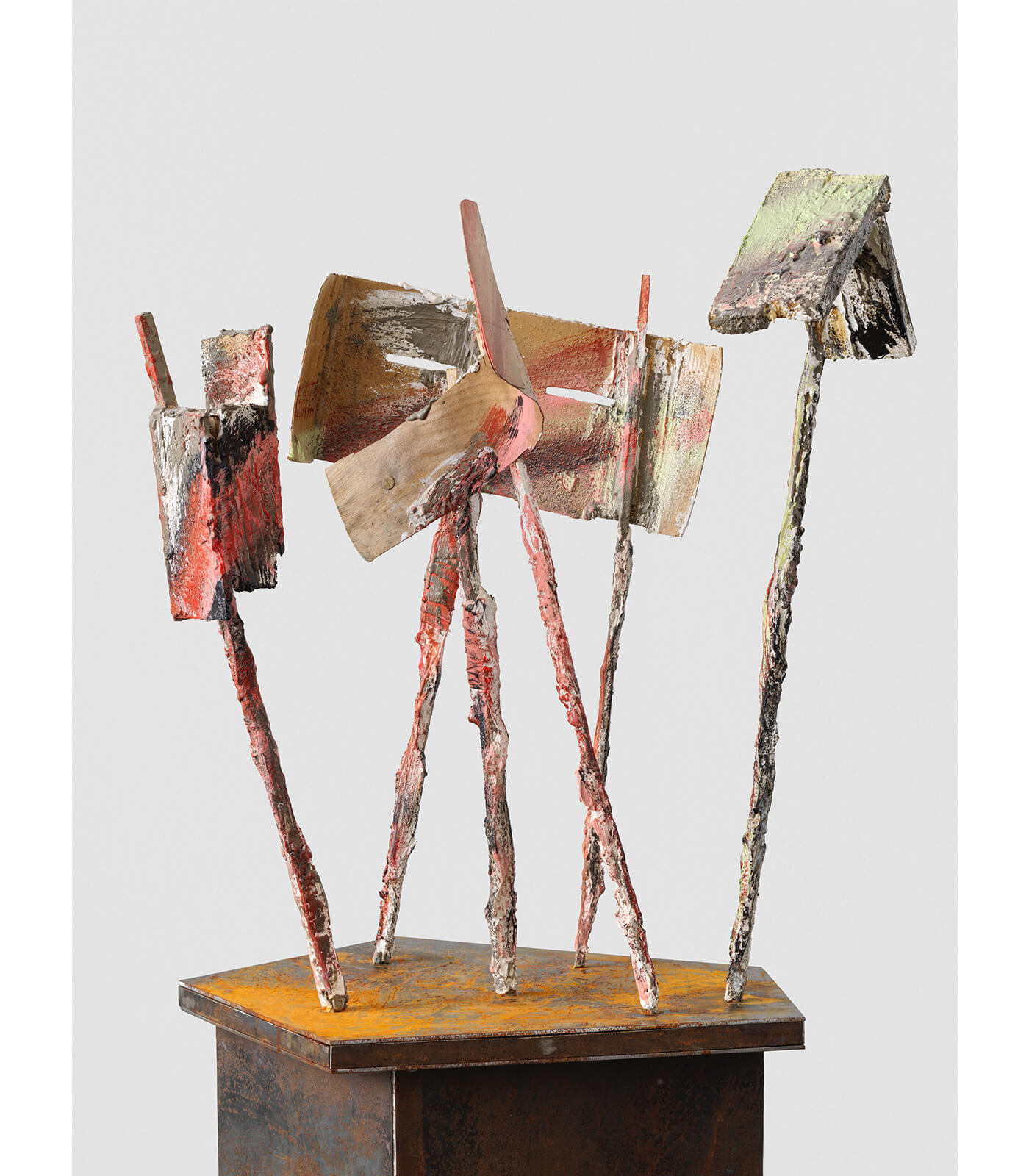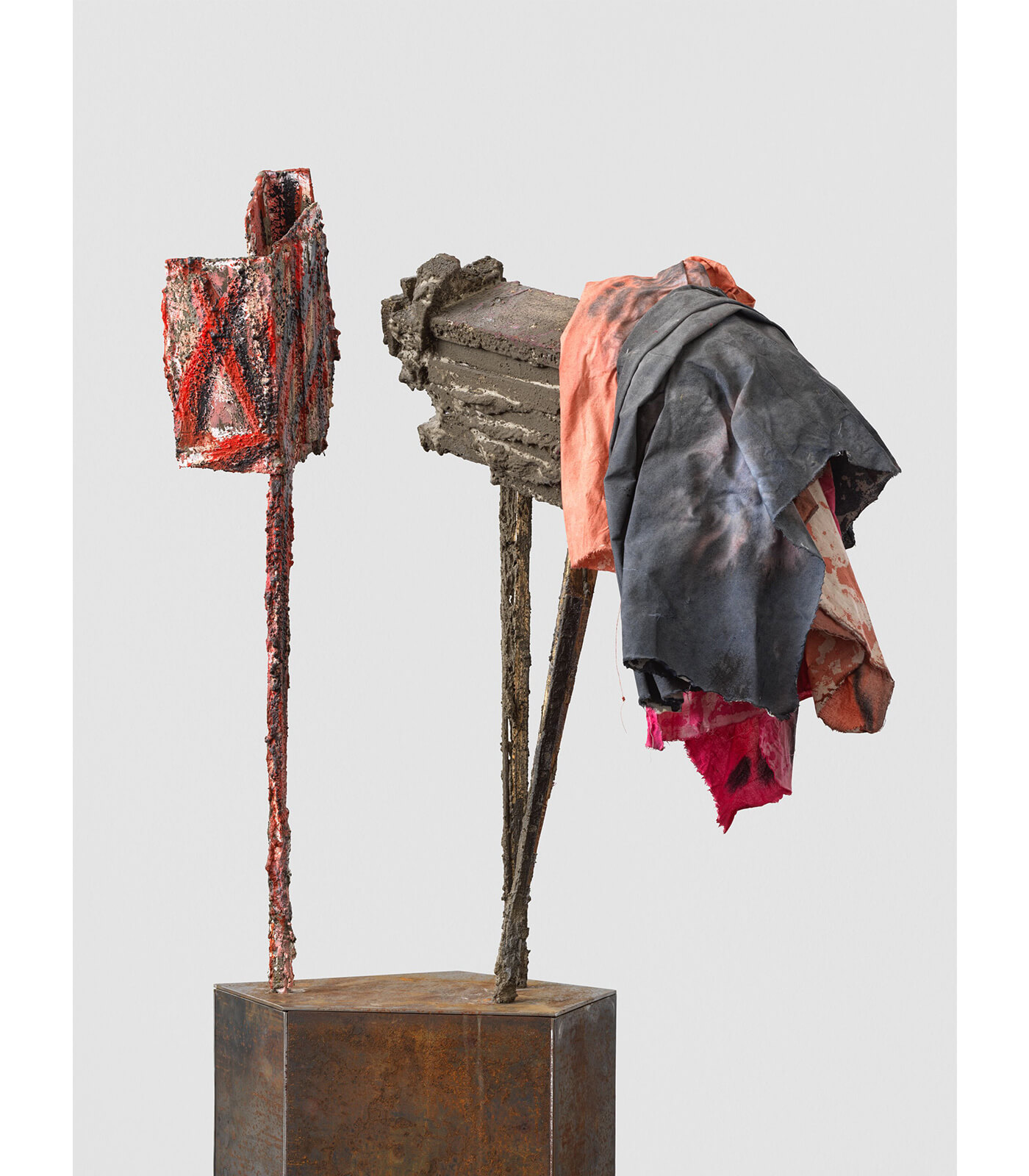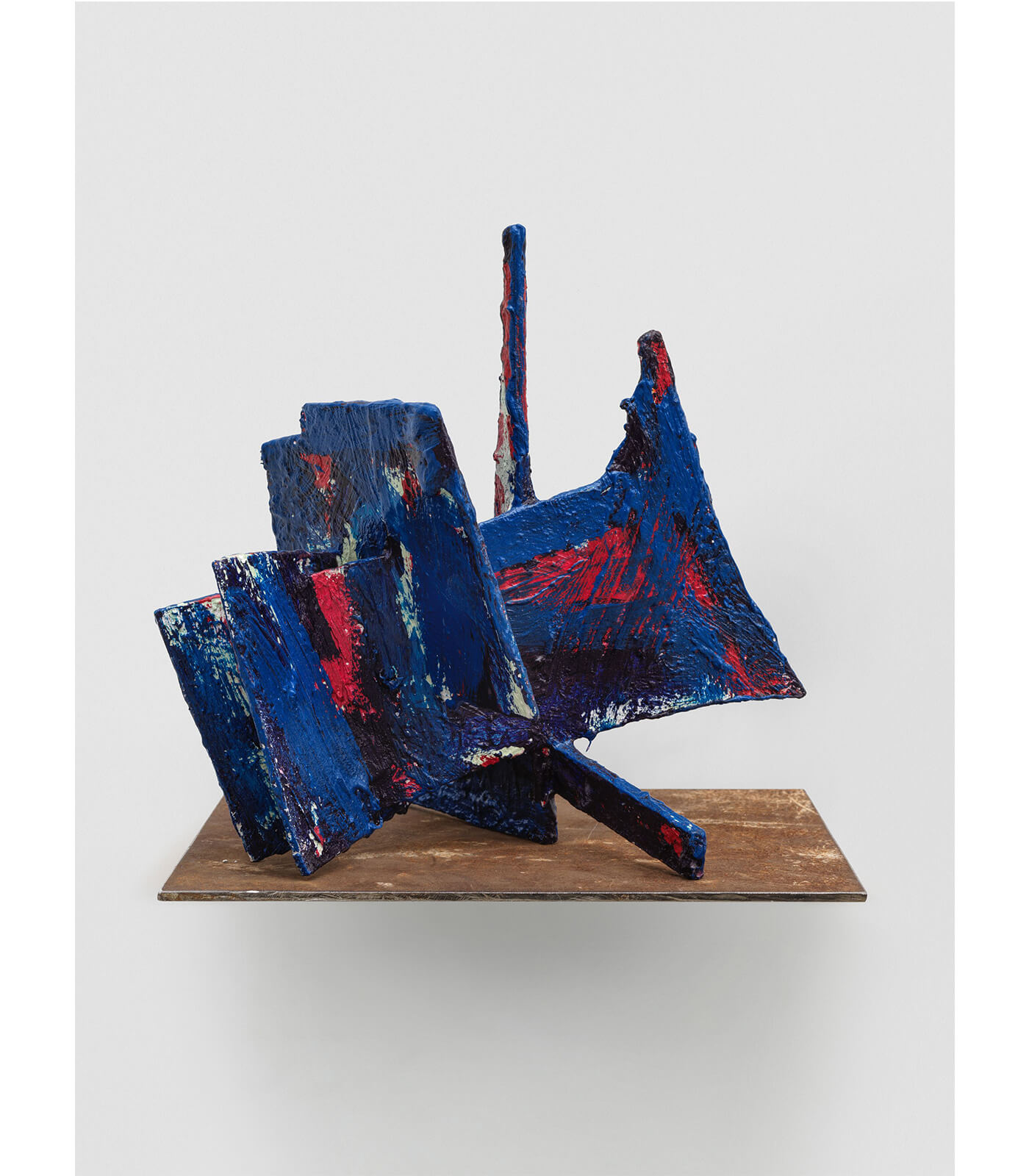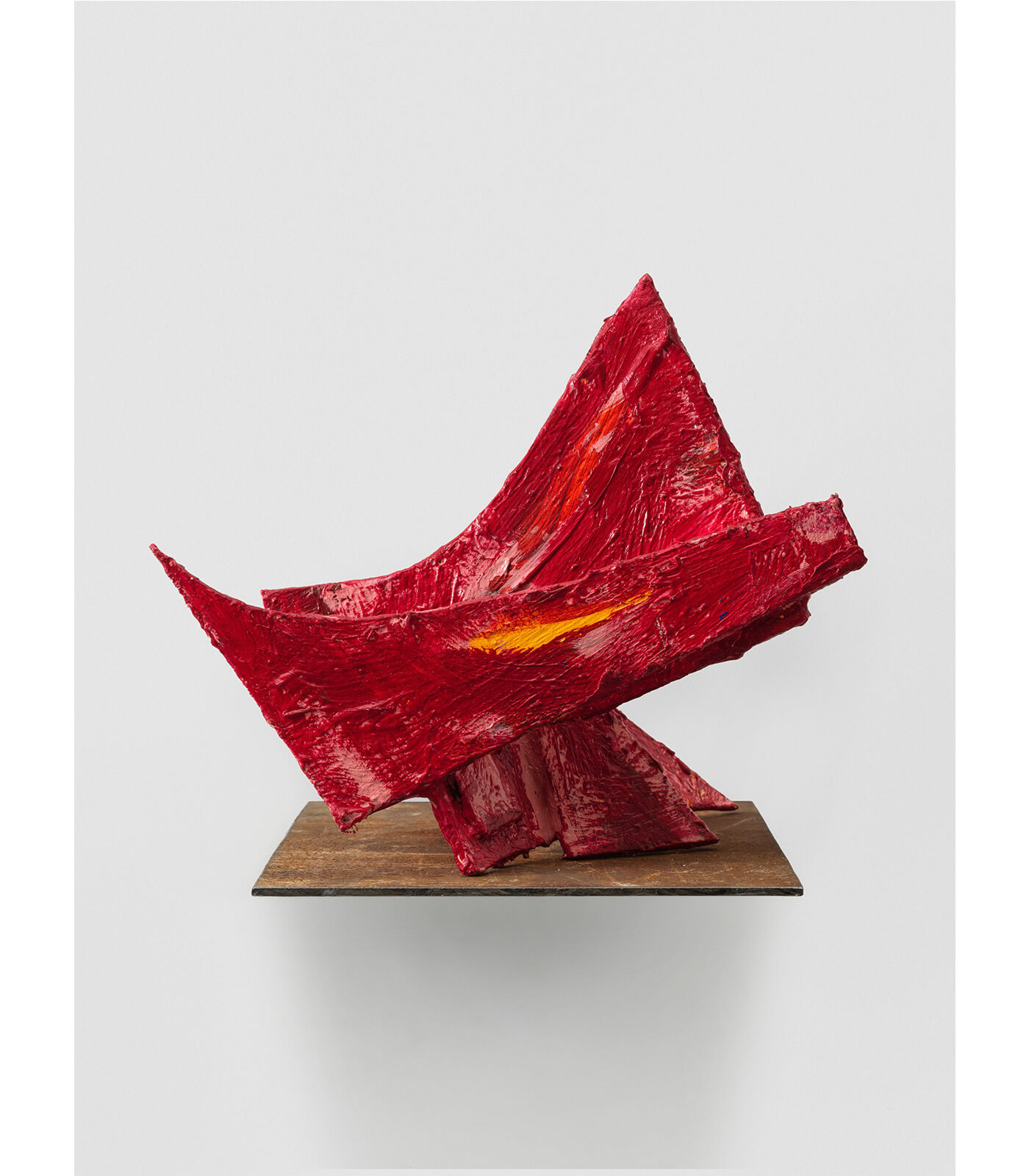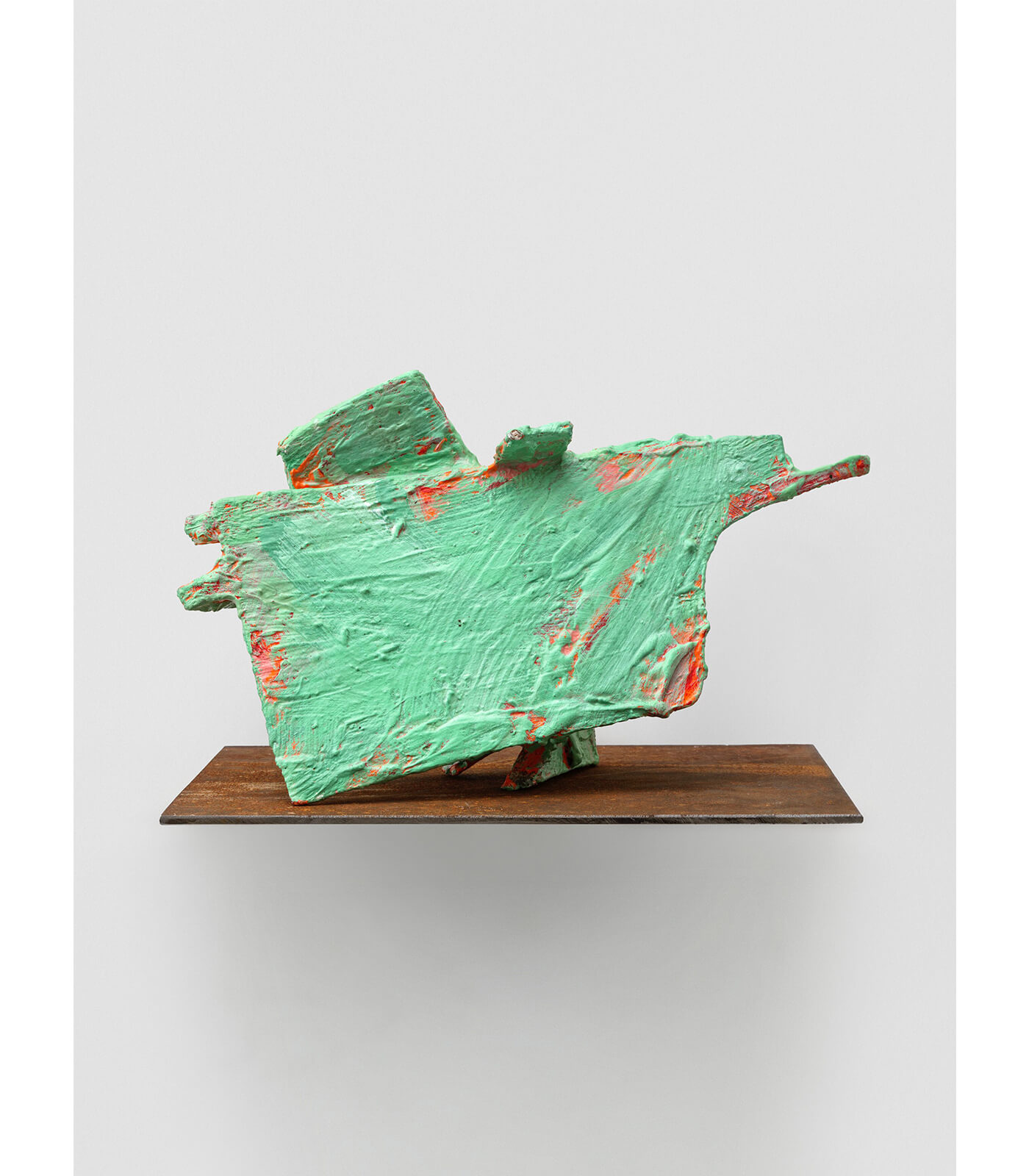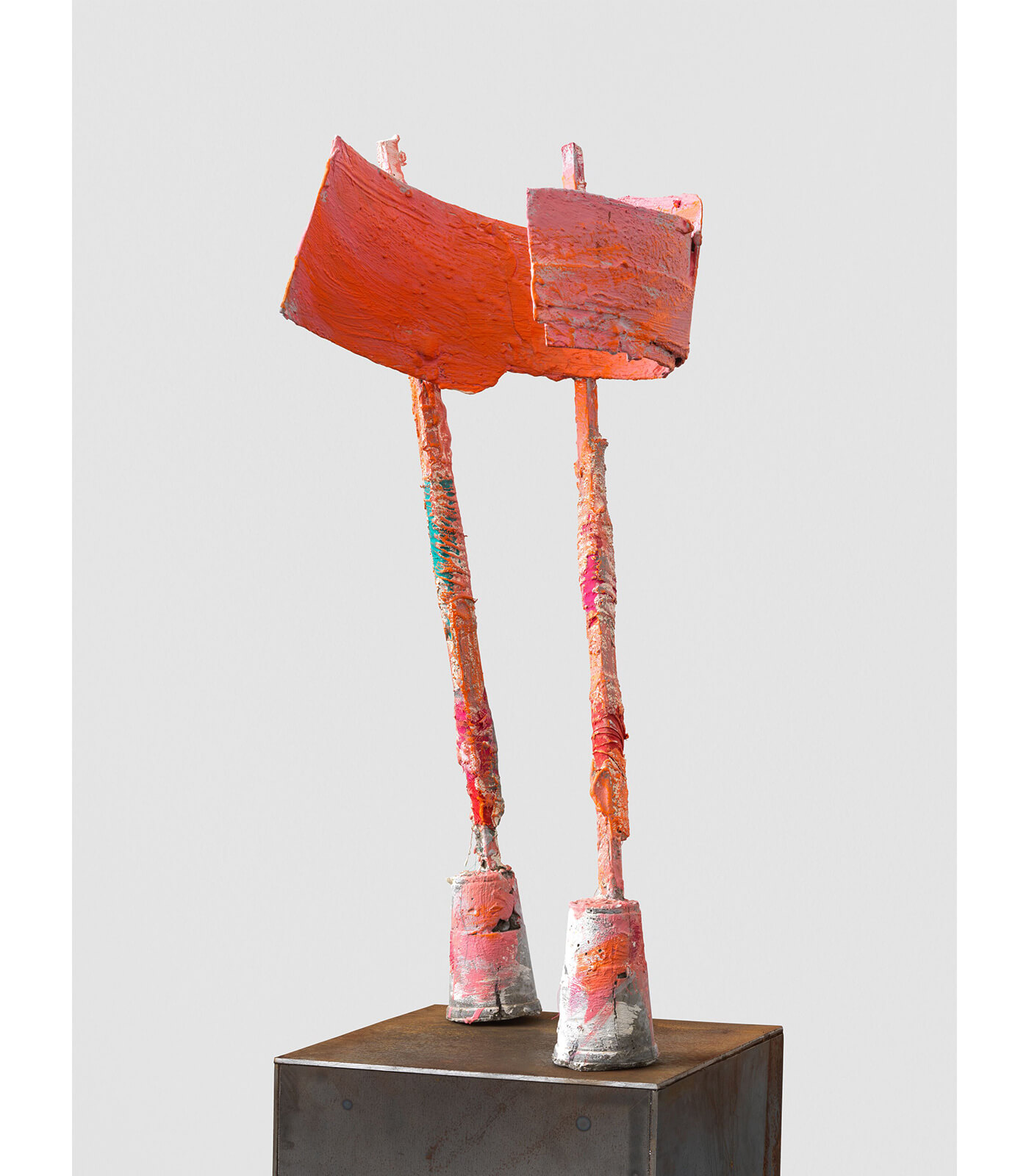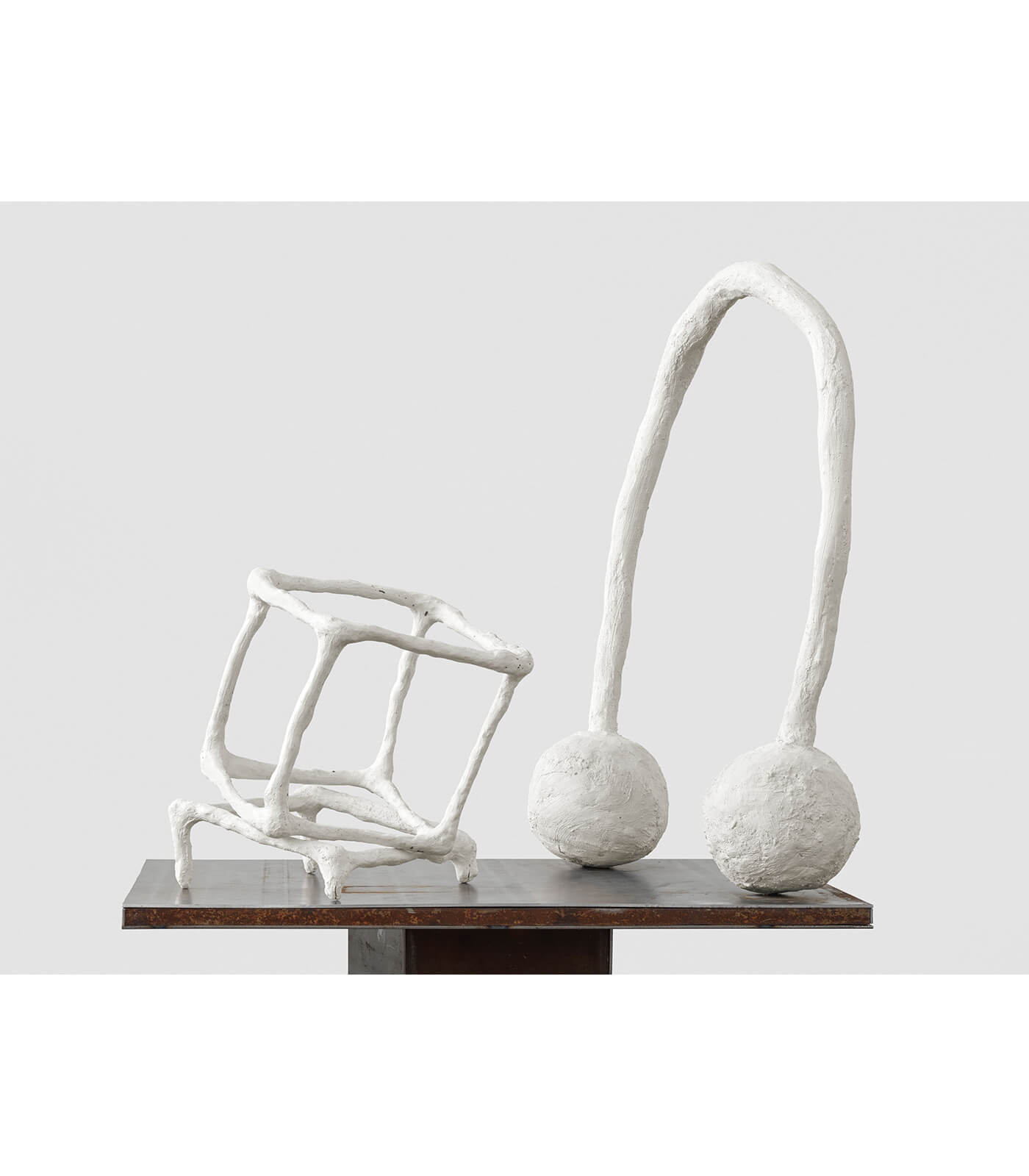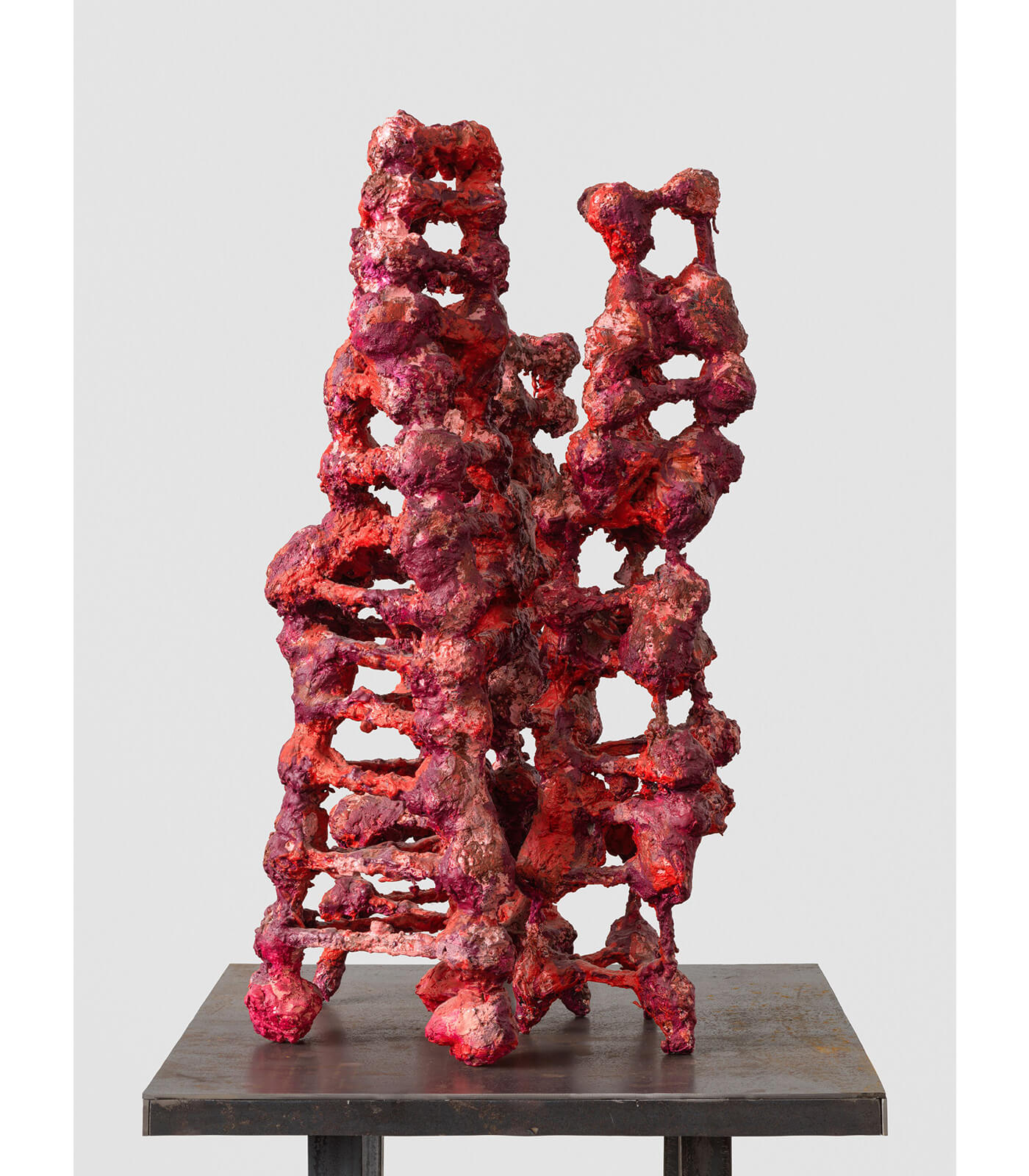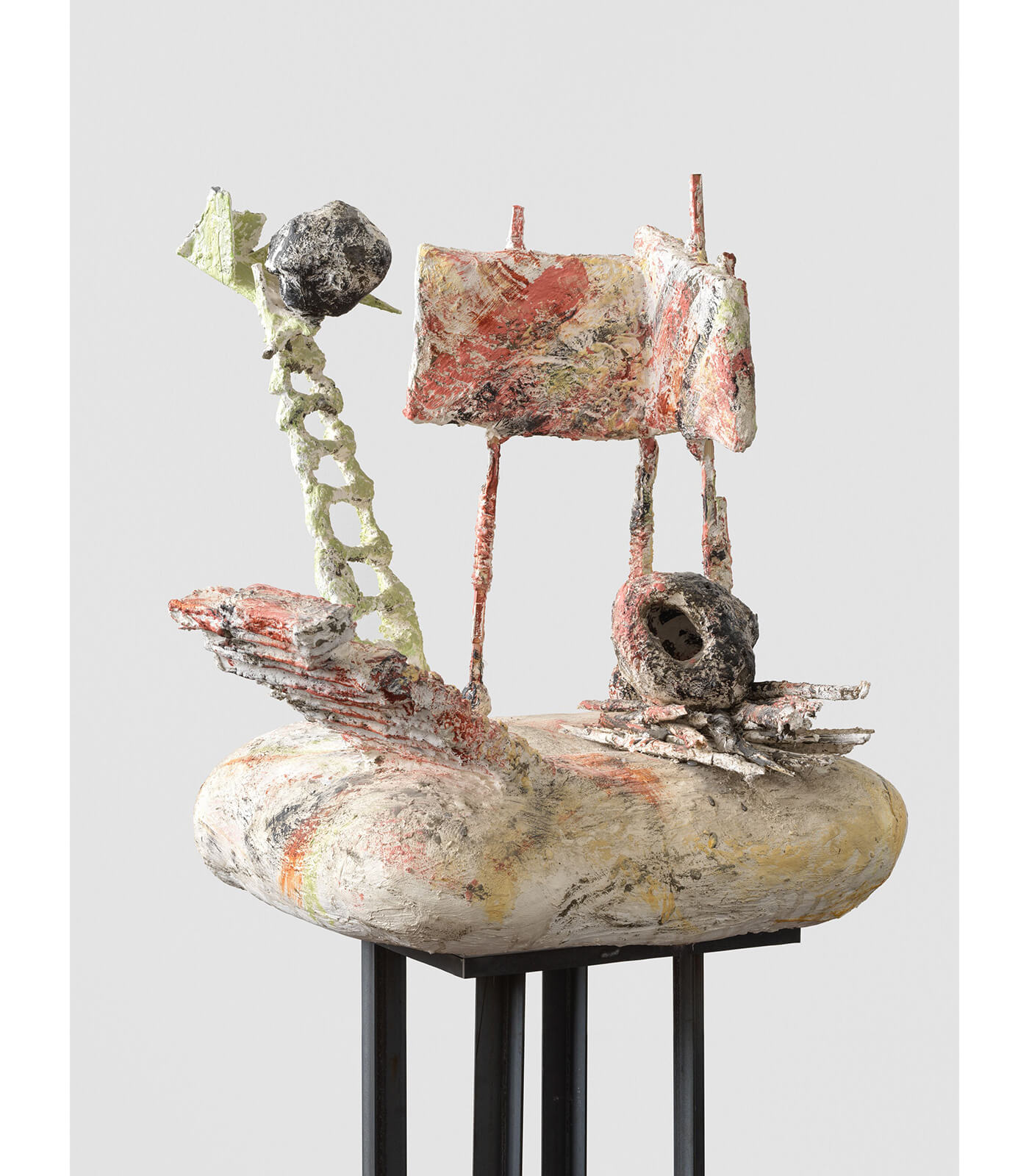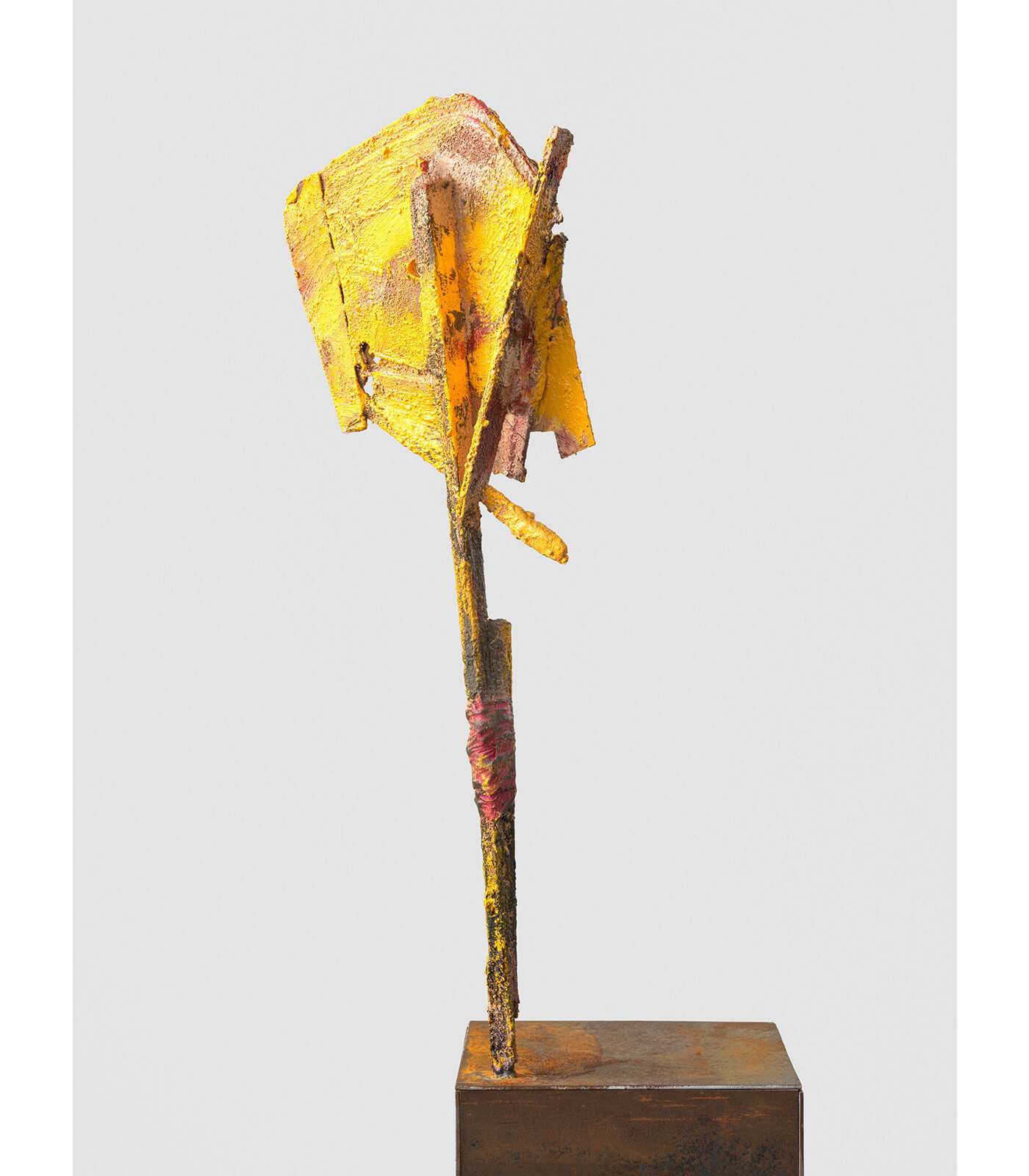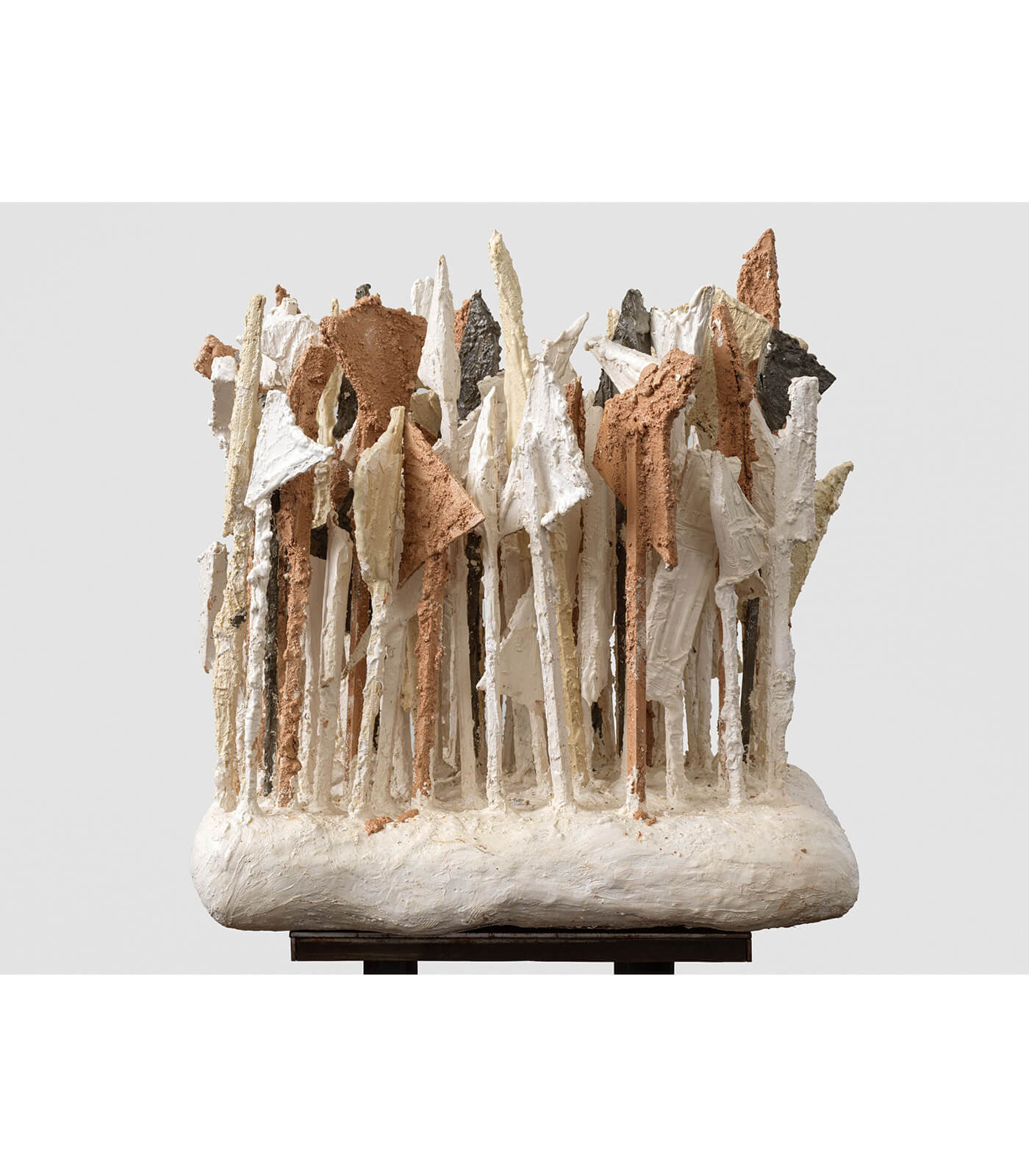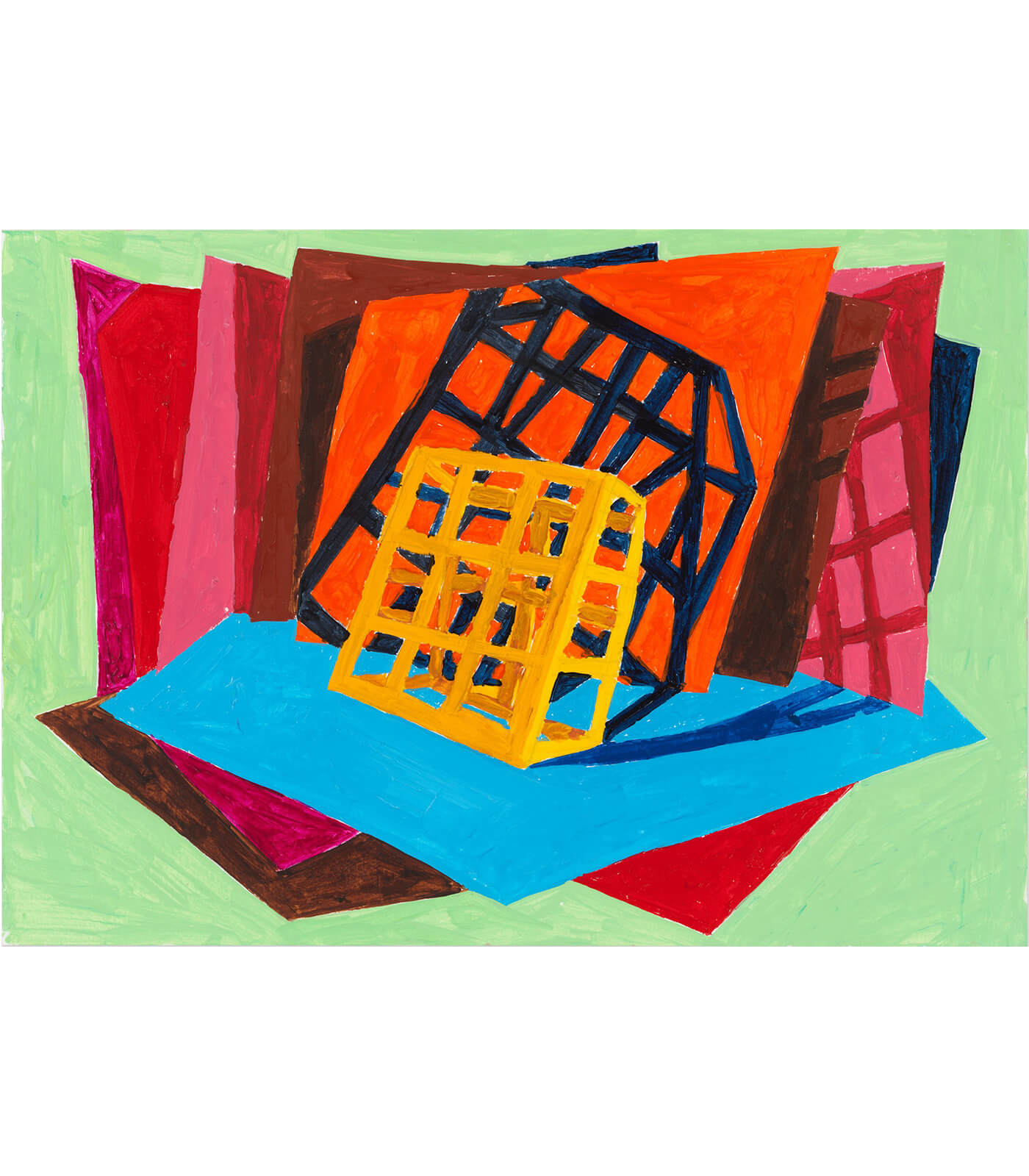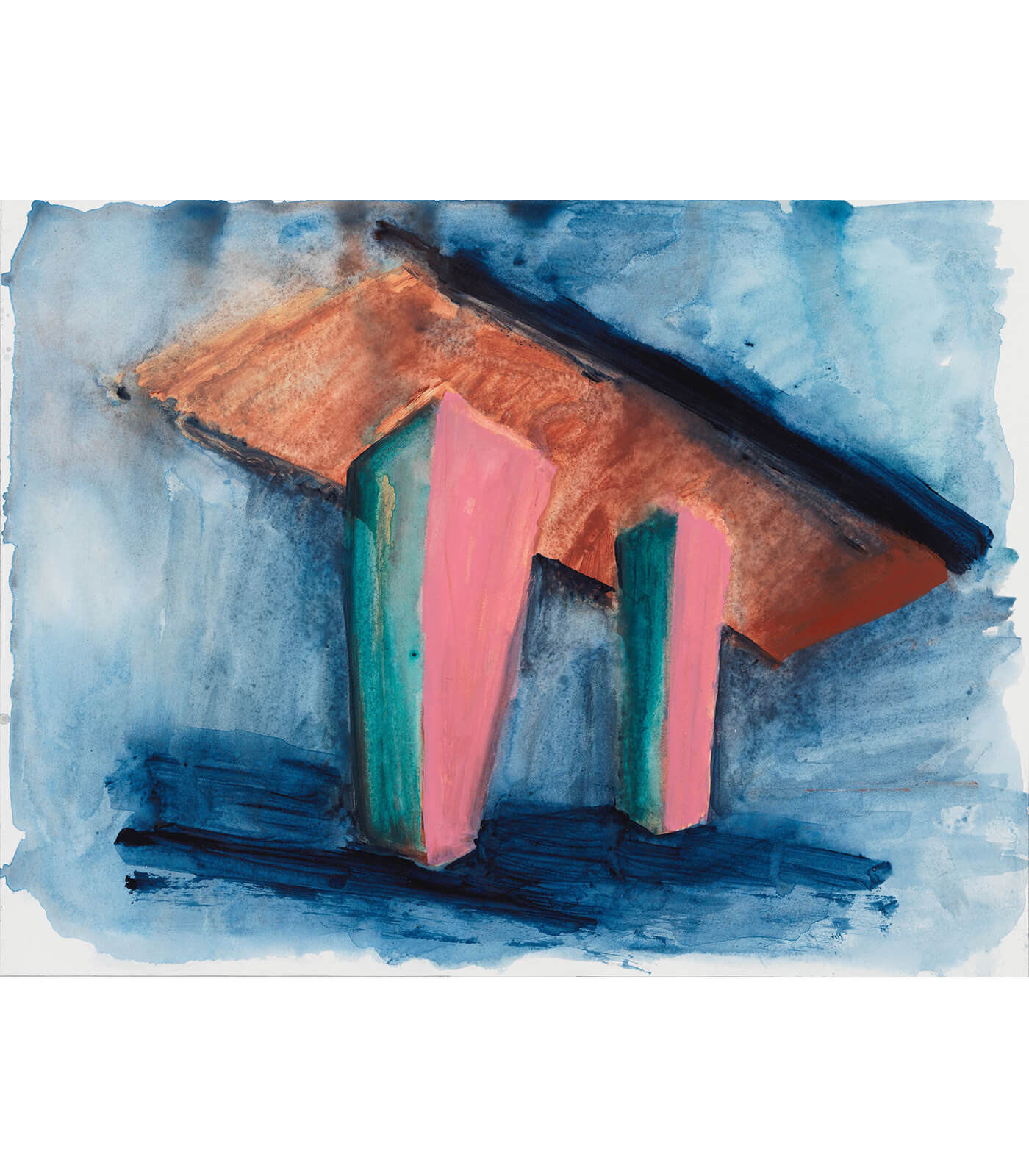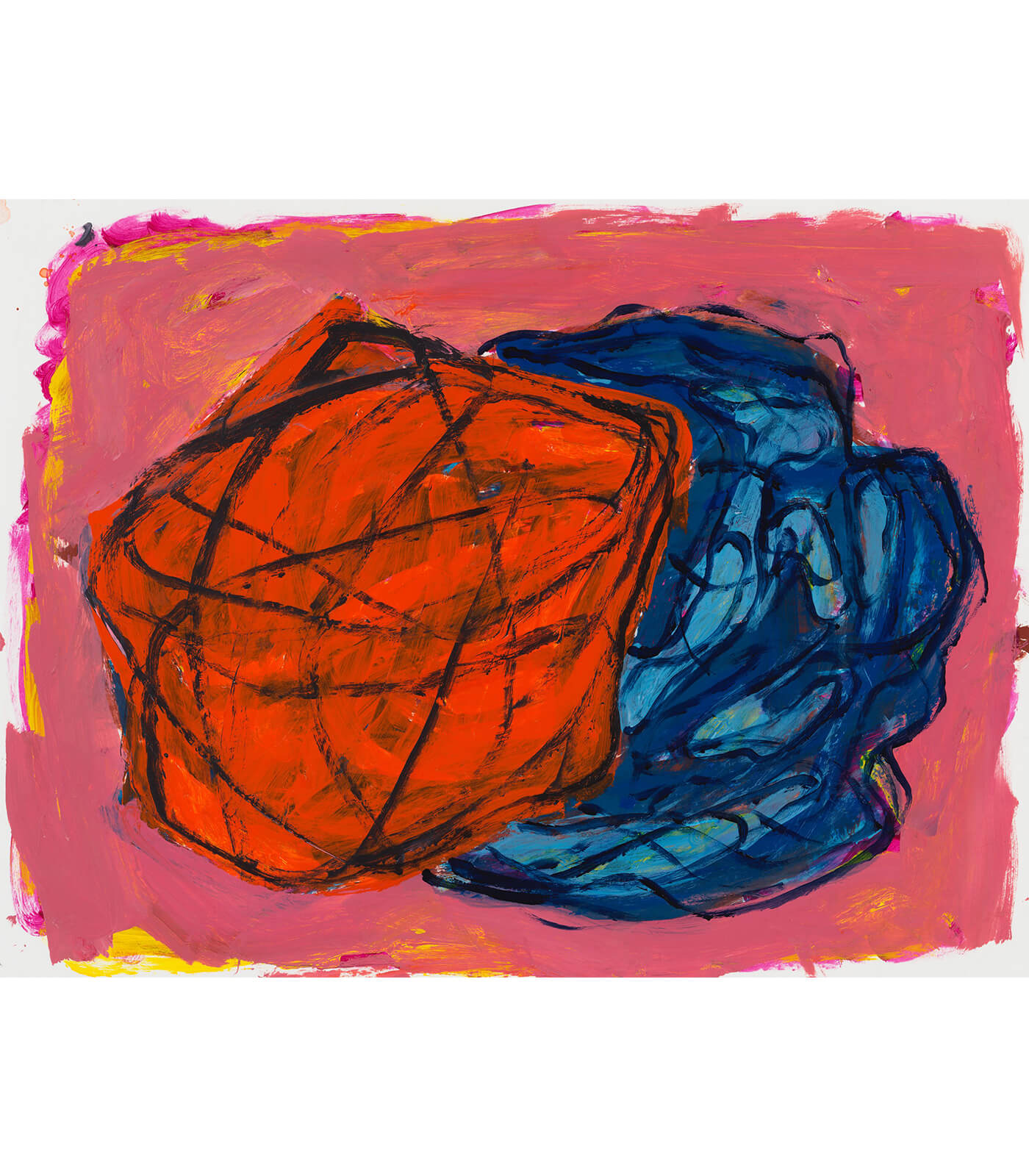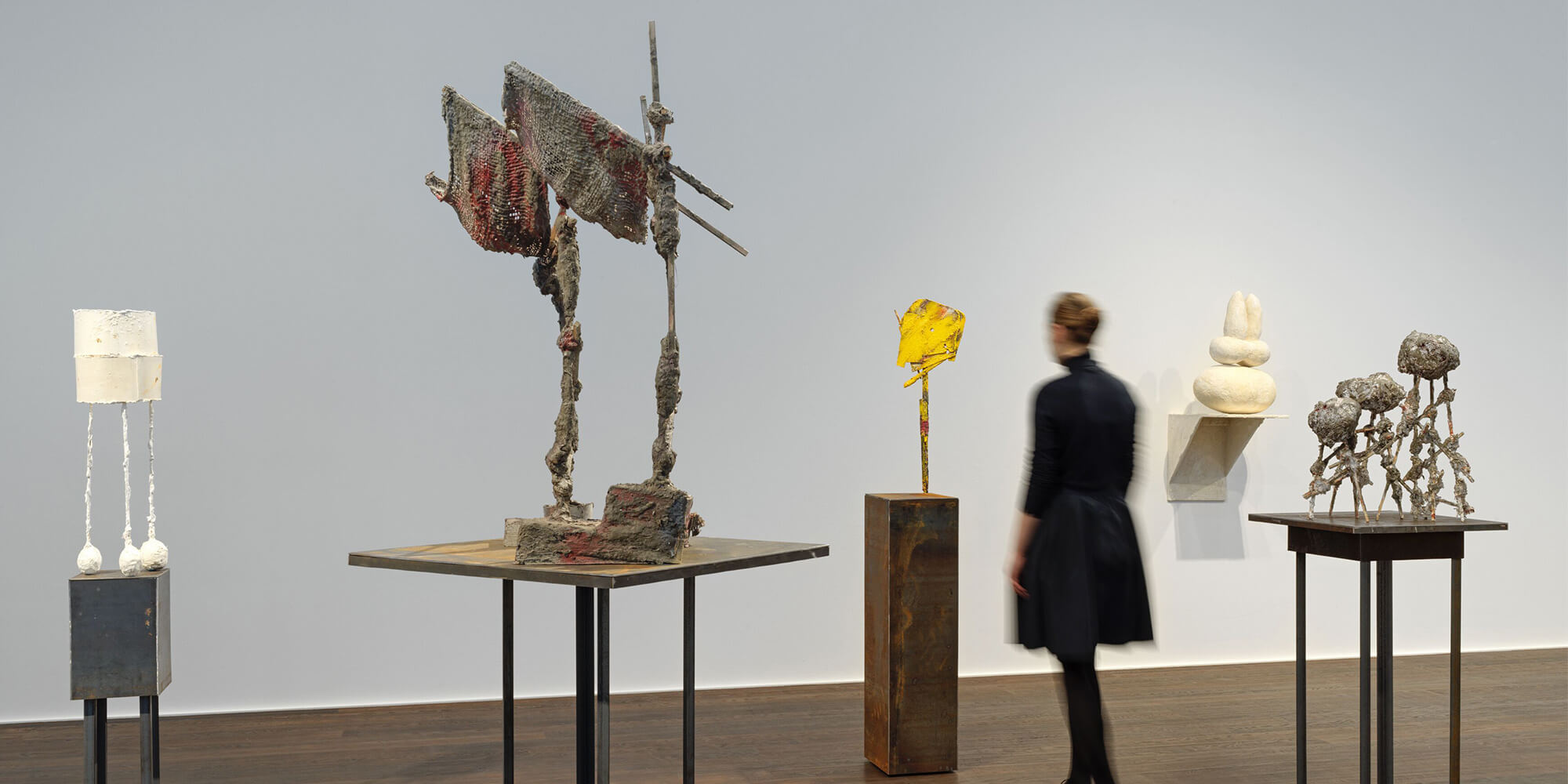
Phyllida Barlow
small worlds
6 February – 14 May 2021
Zurich
For more than fifty years, acclaimed British artist Phyllida Barlow has created sculptures and large-scale installations using a direct and intuitive process of making.
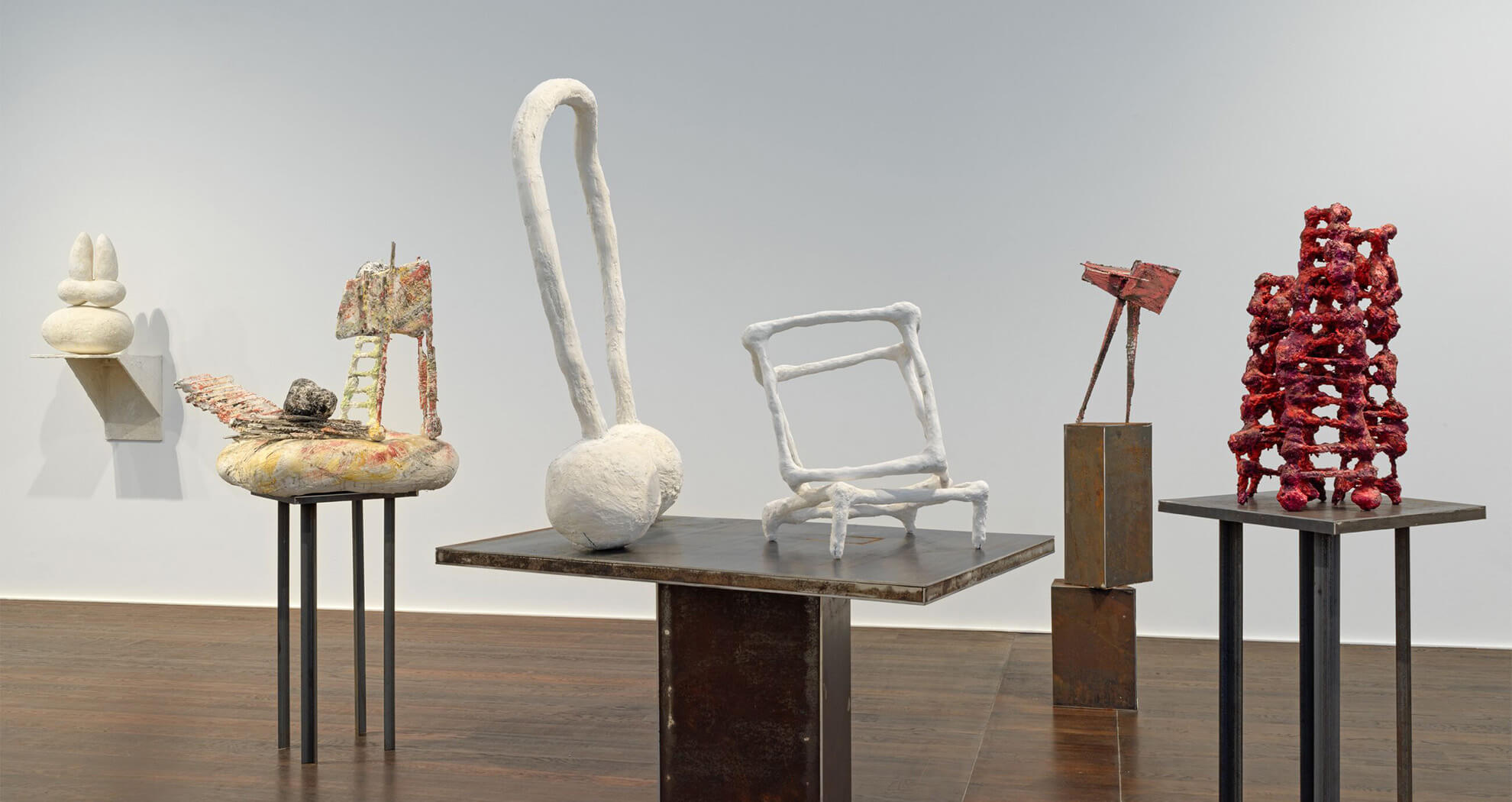
Explore the exhibition with Phyllida Barlow and Jennifer Higgie
Phyllida Barlow's first solo exhibition at Hauser & Wirth Zürich, ‘small worlds’, features new sculptures, drawings and wall-works made by the artist during and inspired by the 2020 lockdown in London. The exhibition in Zurich coincides with Barlow’s major survey show at Haus der Kunst in Munich, opening 10 March 2021.
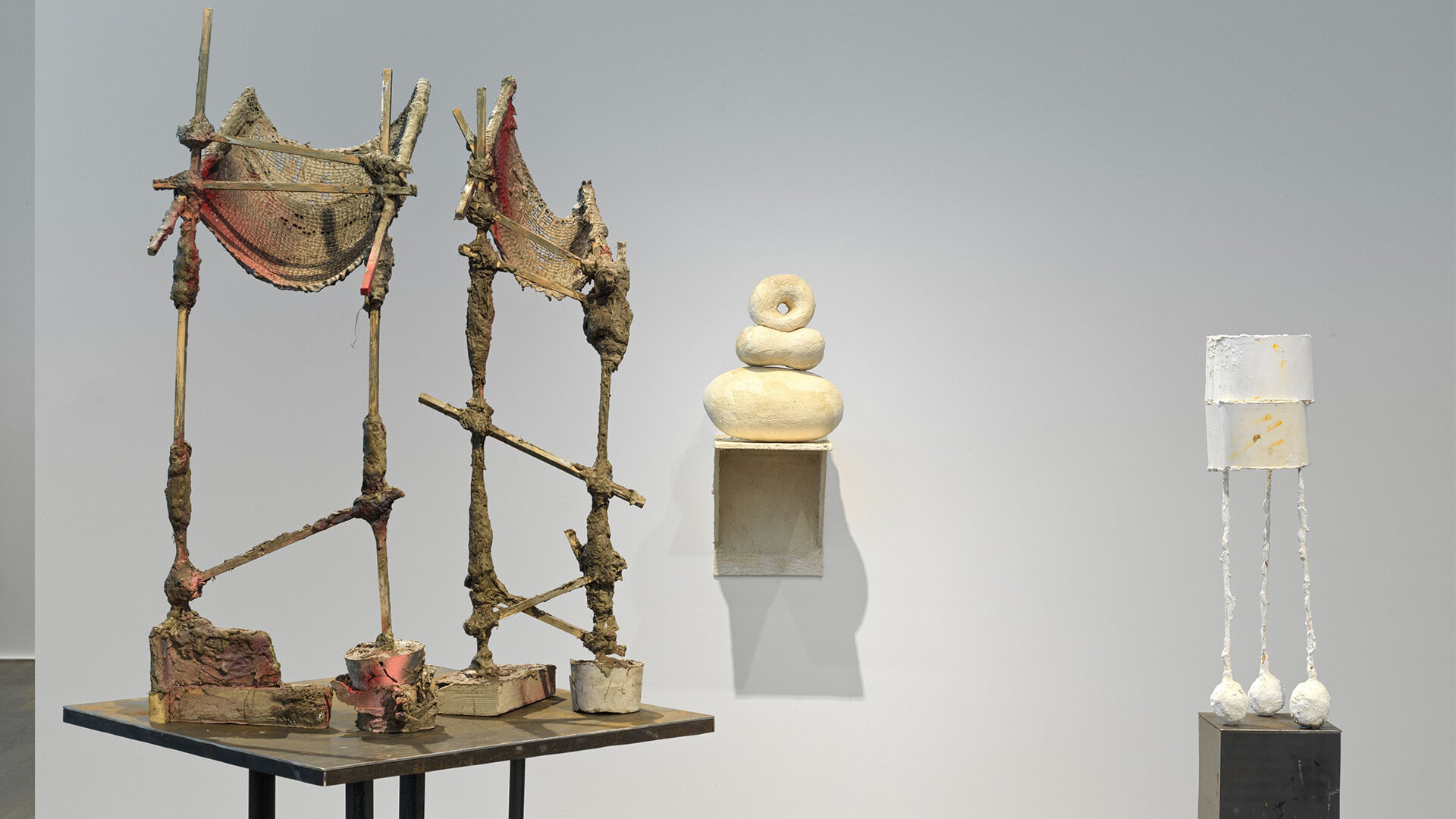
Barlow’s sculptural practice is grounded in an anti-monumental tradition and is concerned with the relationship between objects and the space that surrounds them. She is known for transforming humble, readily available materials through layering, accumulation, and juxtaposition, often drawing inspiration from her urban surroundings and referencing construction debris, architectural details, signs, and discarded objects. The works on view encourage an intimate encounter between object and viewer, continuing a career-long exploration into the ways in which sculpture can dissolve boundaries between realms of experience.
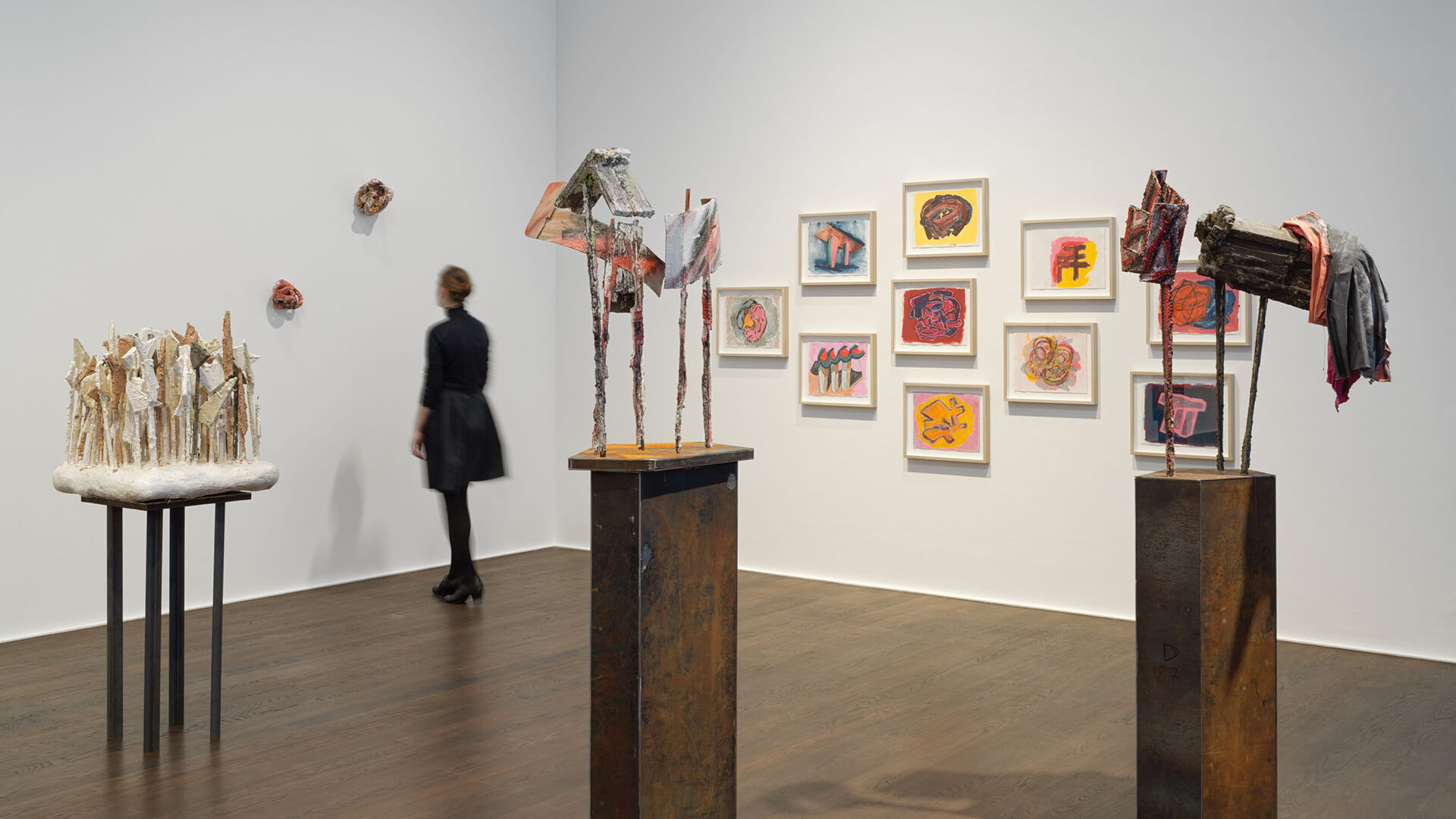
The artist’s new ‘lockdown’ sculptures in Zurich continue a shift away from the more immersive environments within her practice. Created in her home studio in London, these smaller sculptures, placed on steel plinths or directly onto the wall, invite the viewer to consider the works on an individual and more intimate basis. Working on a smaller scale during this period has also allowed the artist to return to a more direct means of making.
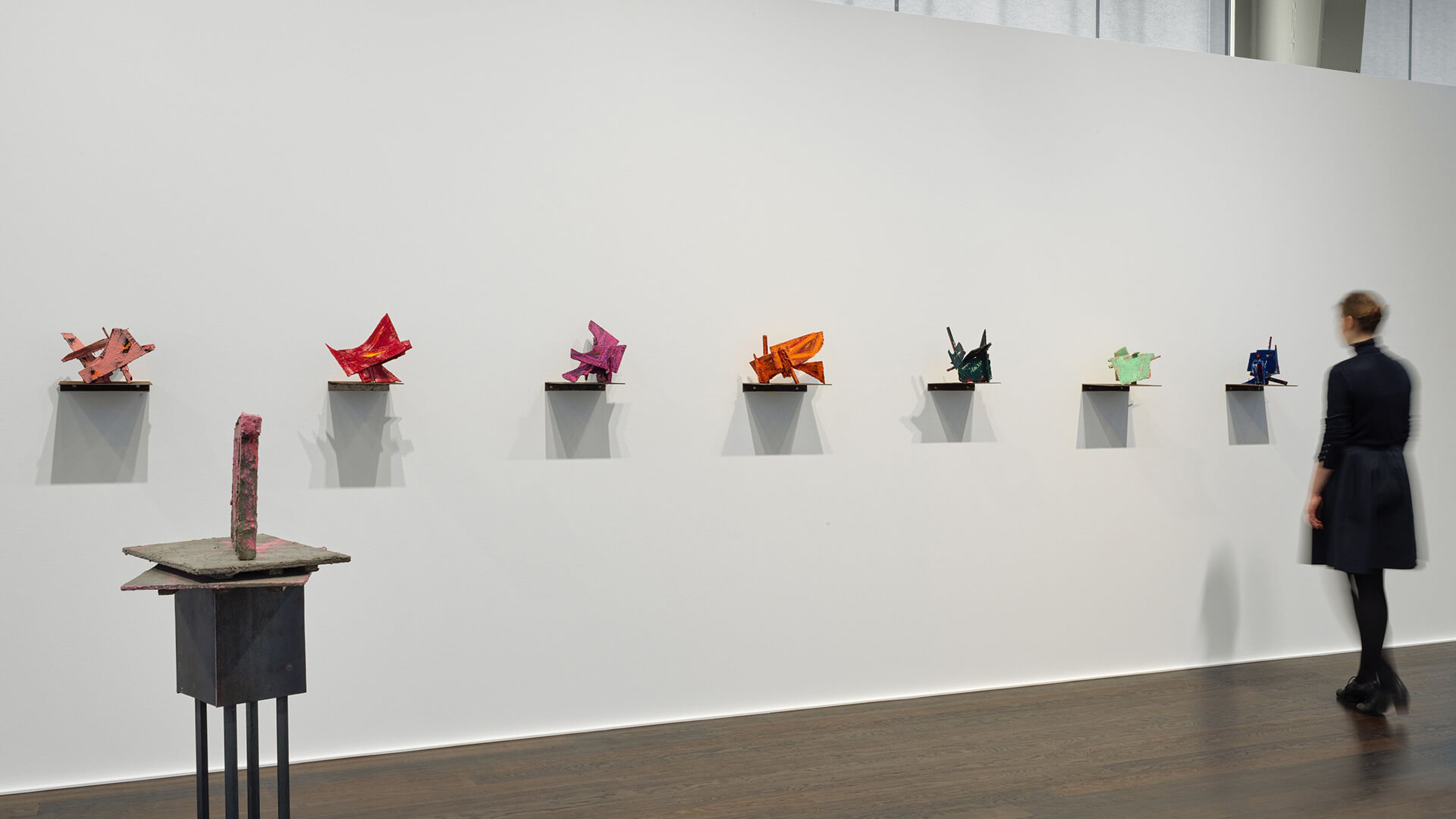
As Barlow writes: ‘i wanted simplicity of making: a minimum of technical problems, speedy solutions, easy to use materials, not too much thinking, a return to previous works, and memories of previous works, no experimenting, to trust what i know, to forget innovation;’
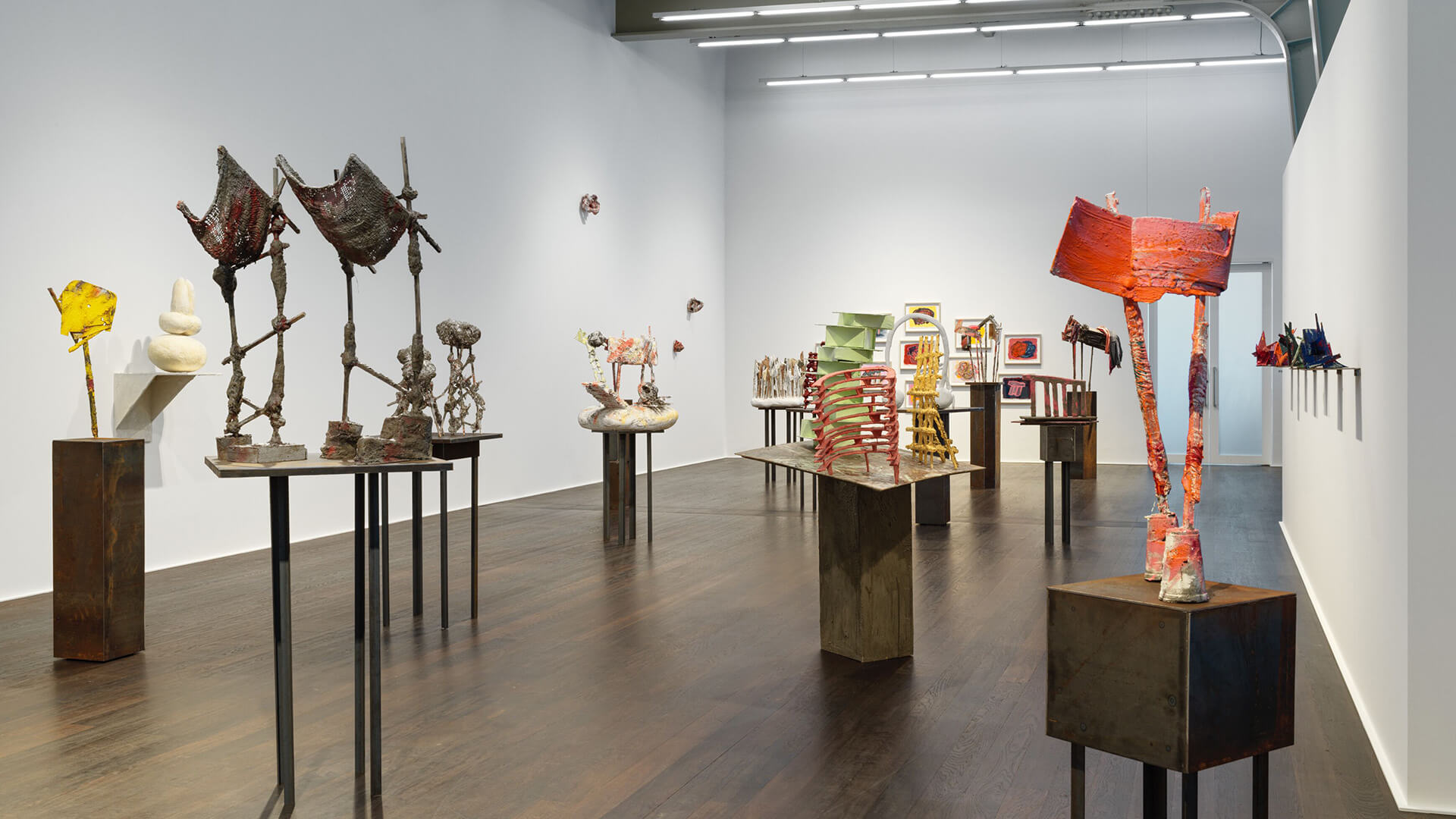
Varying in size, texture, materials, colour and shape, the lockdown sculptures have been transformed from offcuts of previous works, using their raw materiality and structural elements as a starting point for creation.
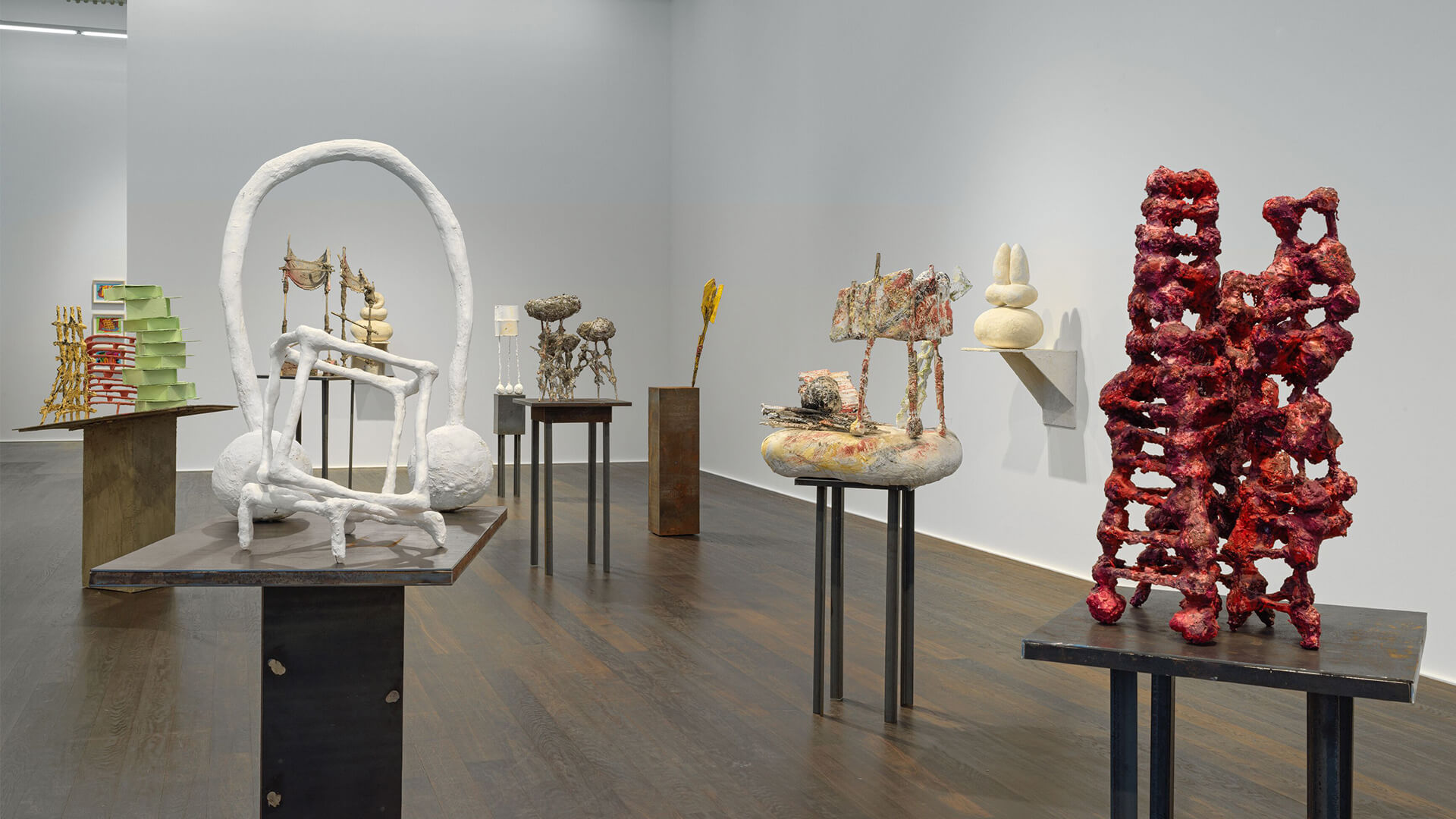
Some of the works in the exhibition were inspired by the transformed landscape of London during the nationwide lockdown – the streets, the buildings, the city’s lights – others by dreamscapes or previous works. Through the individual positioning of these sculptures, Barlow continues to emphasise the transient, absurd, and often joyous encounter between an object and its surroundings.
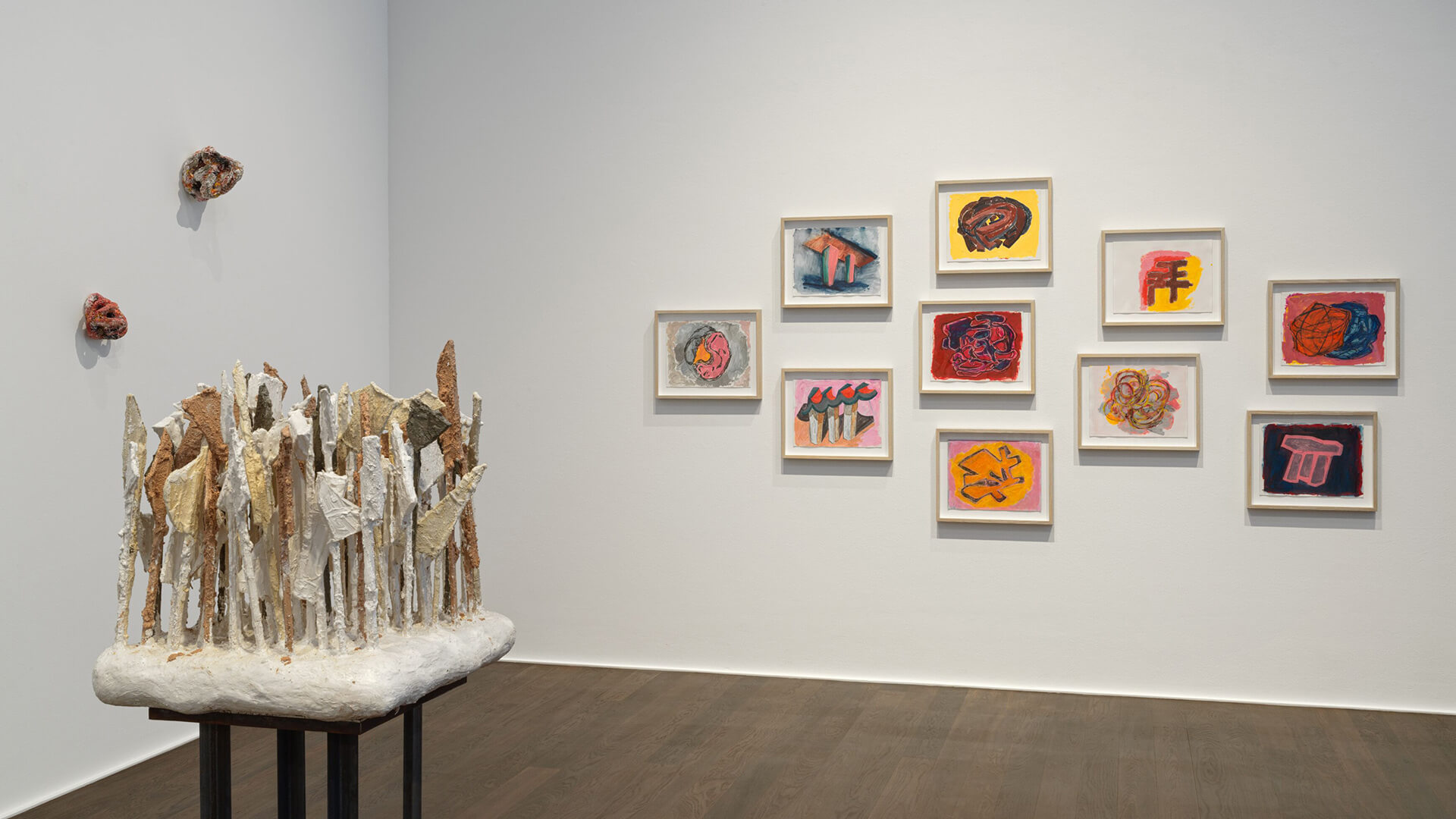
The exhibition also presents a suite of new drawings made in 2020. Drawing is an integral part of Barlow’s practice; she draws before, during and after creating sculptures, both as a means of developing a working process and to visualise ideas which are later translated into three dimensions. Drawing provides Barlow with the freedom to improvise and engage directly with materials. The resulting works are fluid and dynamic. She works across media, using pencil, acrylic and watercolour, always with the intense physicality evident in her sculptural work. The drawings in the presentation are reminiscent of stages or cityscapes. Here, the paper becomes a space for adventure as Barlow creates unlikely compositions within her drawings which are freed from the laws of physics.
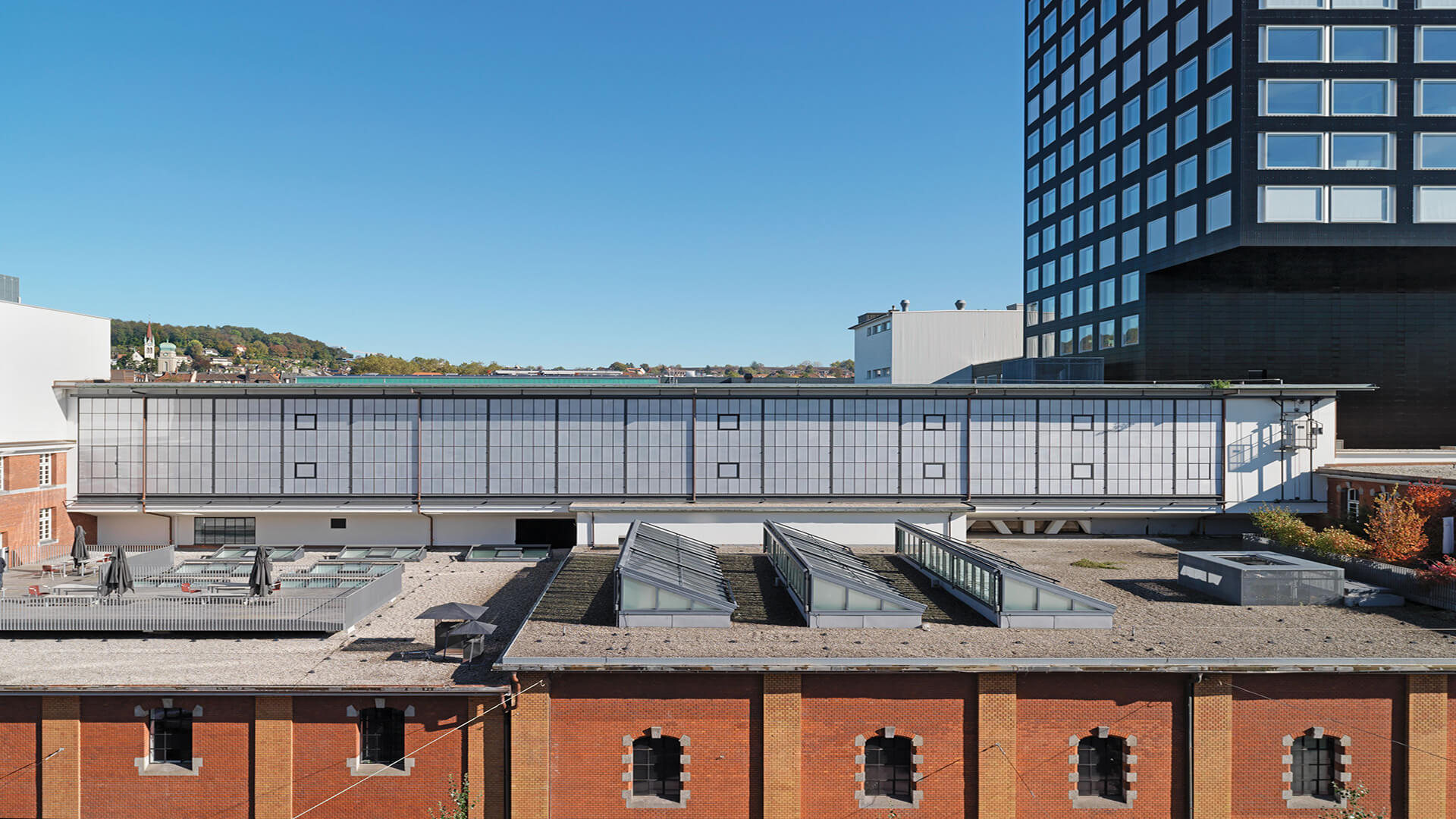
On view in Zurich
In accordance with recent government guidance, the gallery will reopen on 2 March. Please visit our locations pages for the latest gallery operating hours.
About the Artist
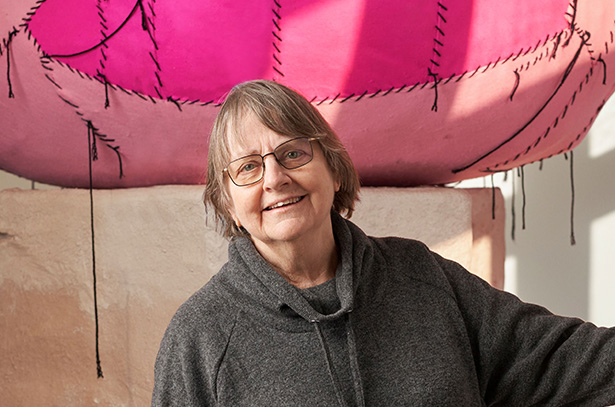
Phyllida Barlow
For almost 60 years, British artist Phyllida Barlow took inspiration from her surroundings to create imposing installations that can be at once menacing and playful. She created large-scale yet anti-monumental sculptures from inexpensive, low-grade materials such as cardboard, fabric, plywood, polystyrene, scrim, plaster and cement. These constructions were often painted in industrial or vibrant colors, the seams of their construction left at times visible, revealing the means of their making.
Barlow’s restless invented forms stretch the limits of mass, volume and height as they block, straddle and balance precariously. The audience is challenged into a new relationship with the sculptural object, the gallery environment and the world beyond.
‘There’s something about walking around sculpture that has the possibility of being reflective, like walking through a landscape,’ Barlow has said. ‘The largeness of sculpture has that infinite possibility to make one engage beyond just the object itself and into other realms of experience.’
Barlow exhibited extensively across institutions internationally and in 2017 represented Britain at the Venice Biennale.
Inquire about available works by Phyllida Barlow
In addition to Barlow’s survey exhibition at Haus der Kunst in Munich opening on the 10 March 2021, upcoming artist projects include: ‘Another Energy: Power to Continue Challenging’ at Mori Art Museum, Tokyo, opening on the 22 April. A new publication of her writings will be released by Hauser & Wirth Publishers in autumn 2021. Barlow has also designed the stage for Mozart’s ‘Idomeneo’ at the Prinzregententheater in Munich, which will premiere in July 2021.
–
In accordance with recent government guidance, the gallery will reopen on 2 March. Please visit our locations pages for the latest gallery operating hours.
Current Exhibitions
1 / 11
